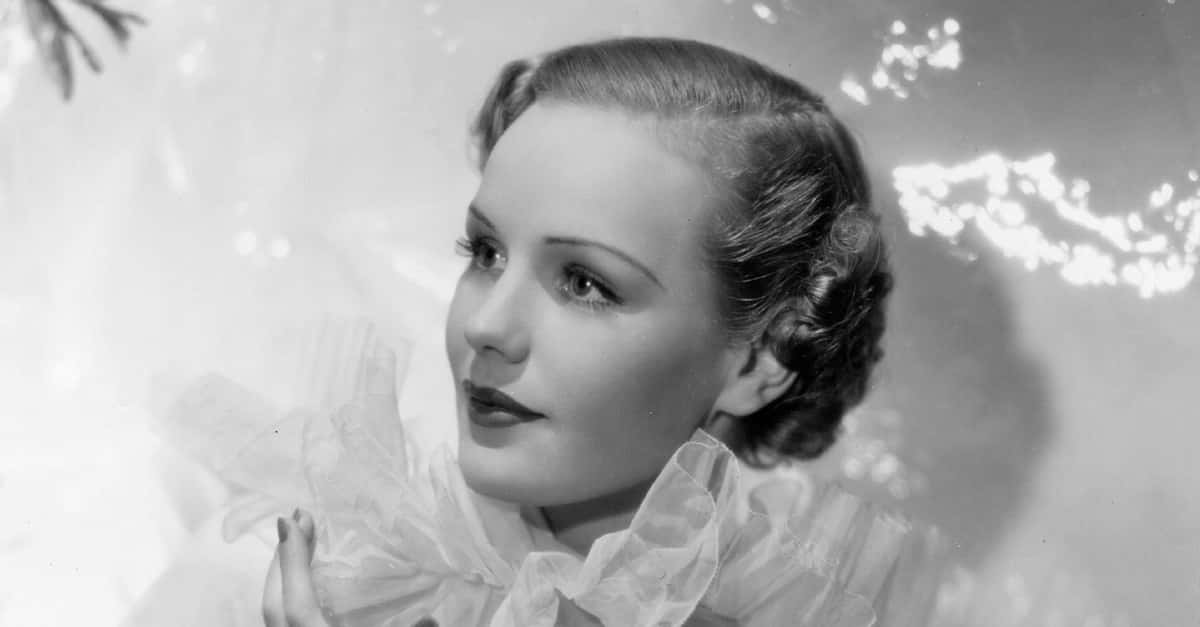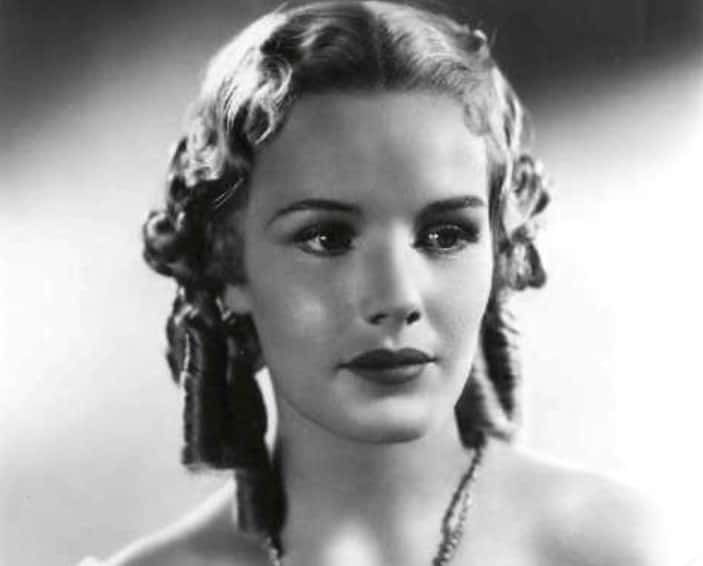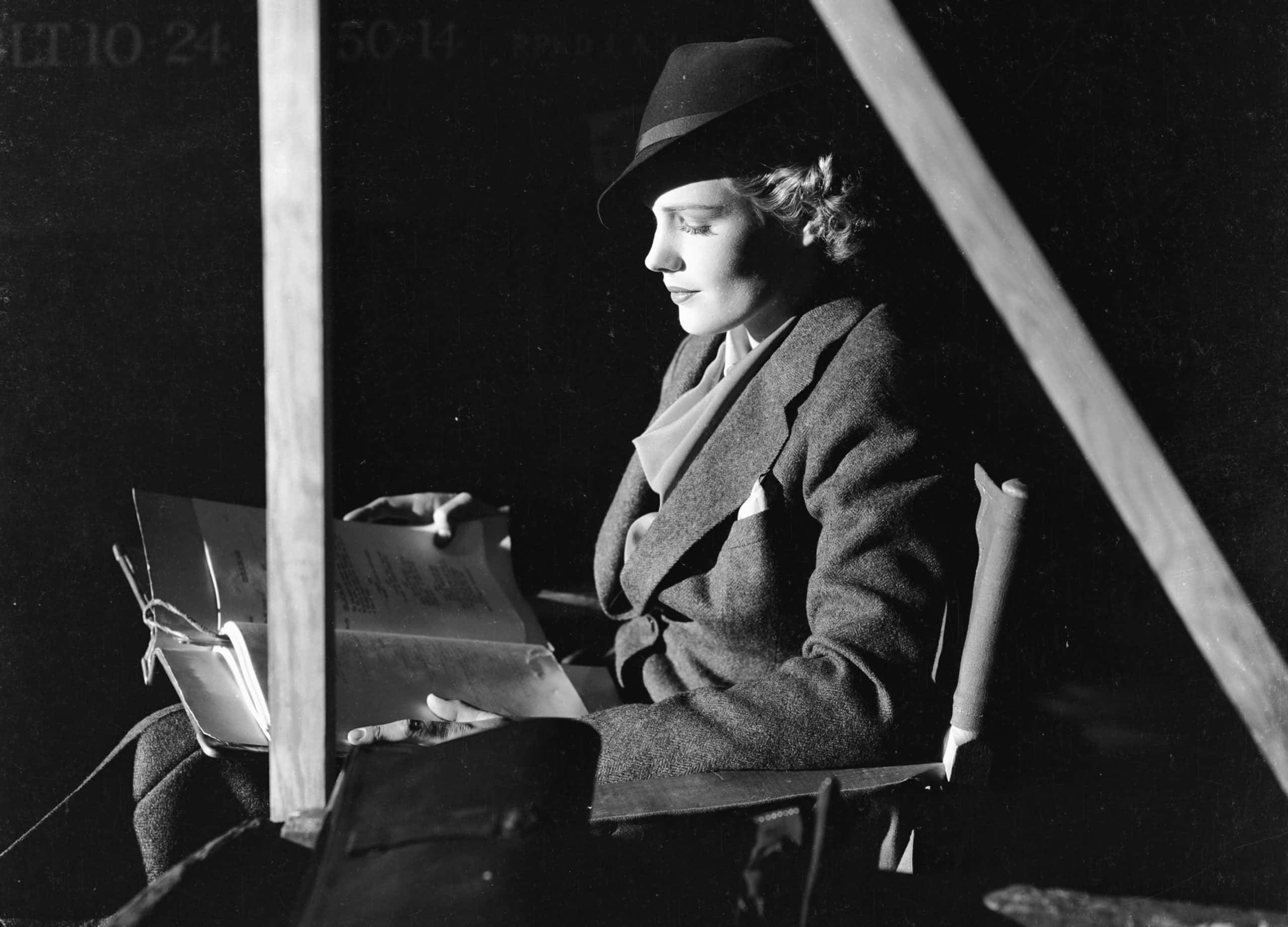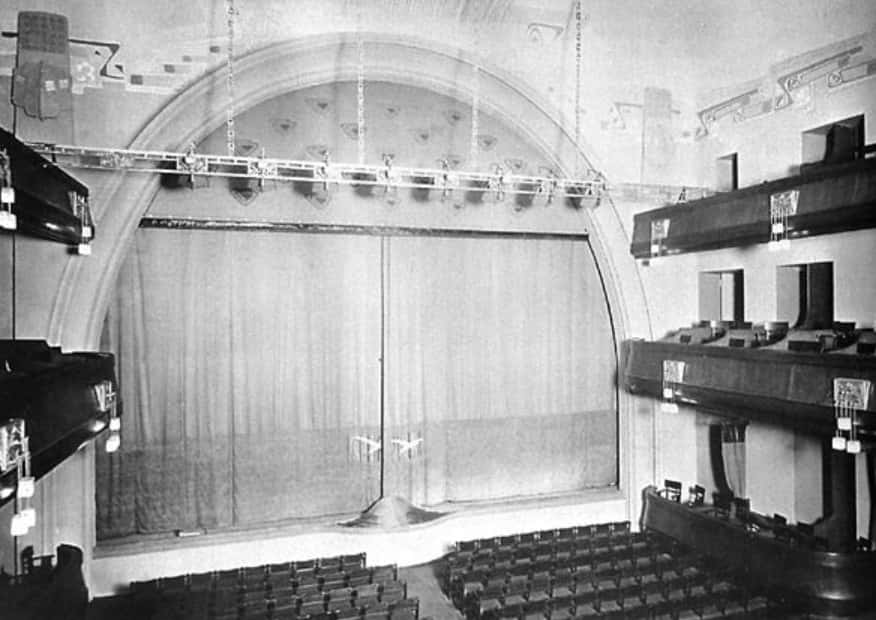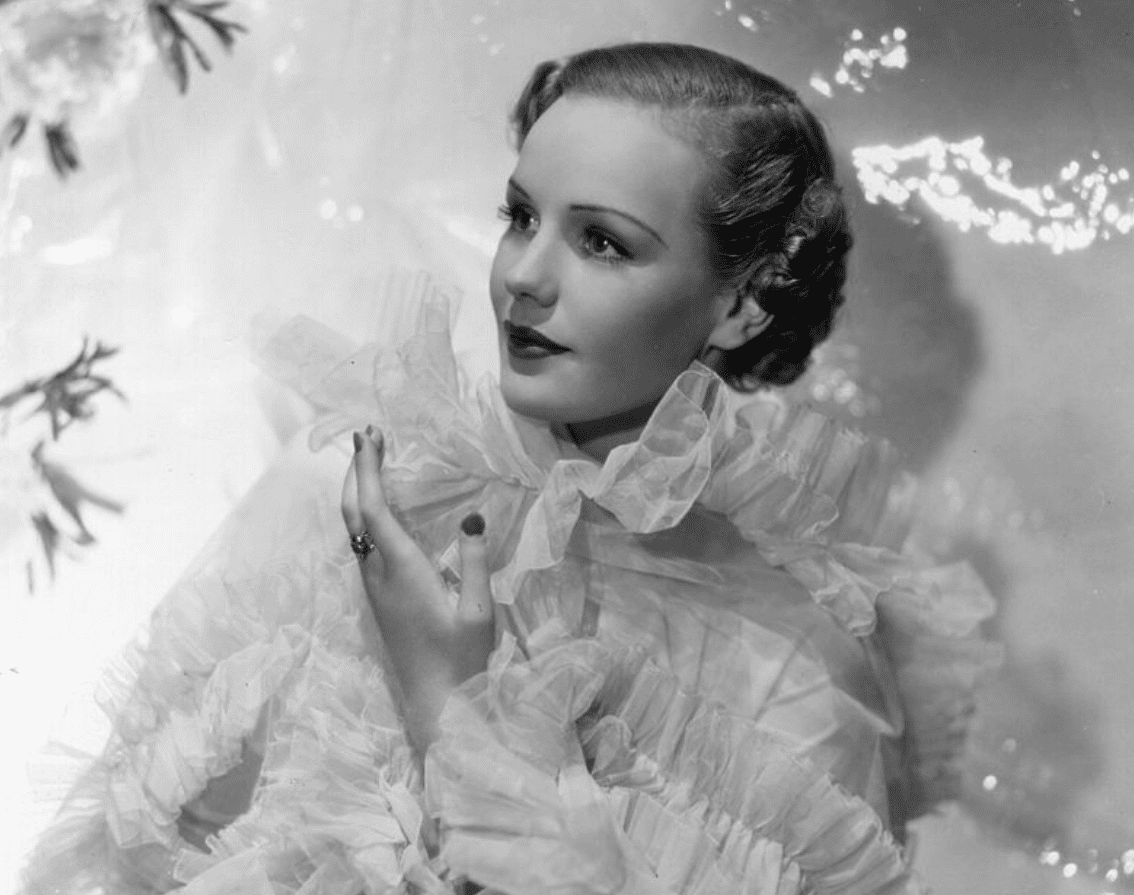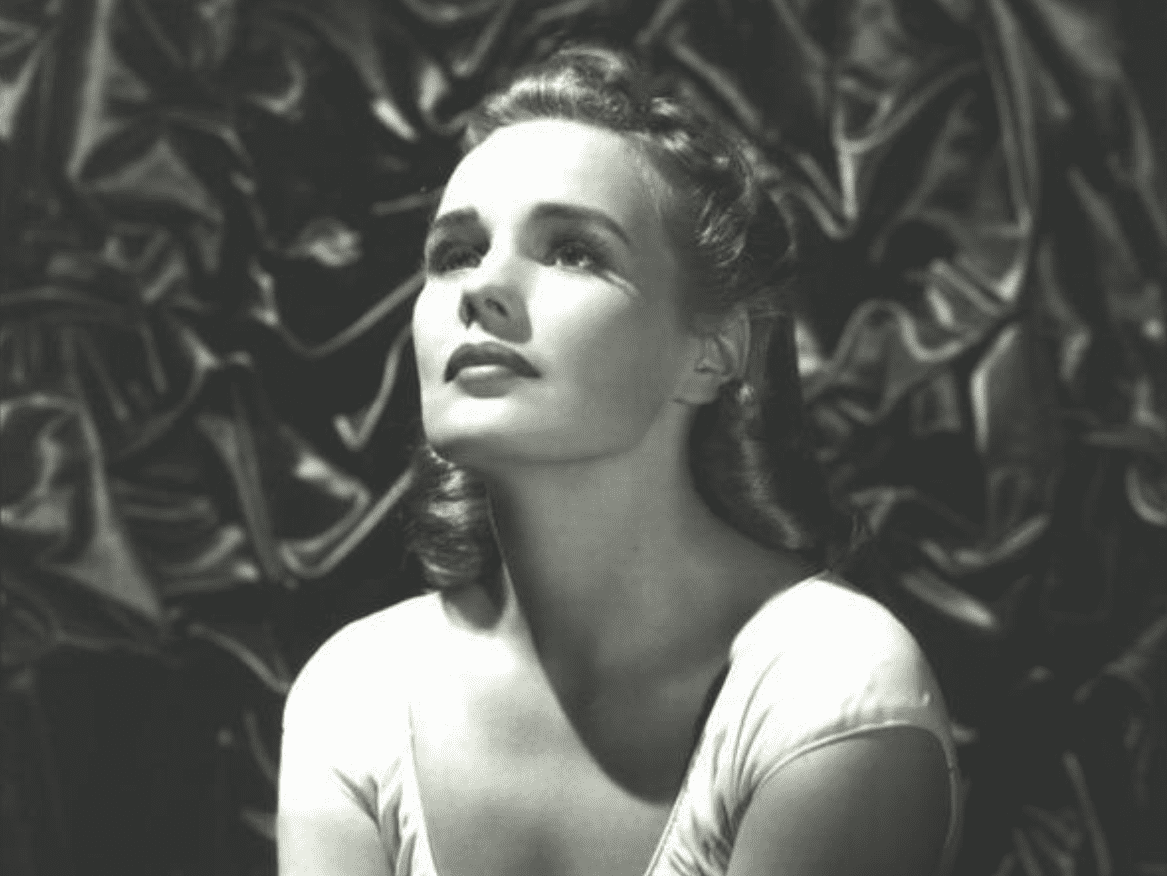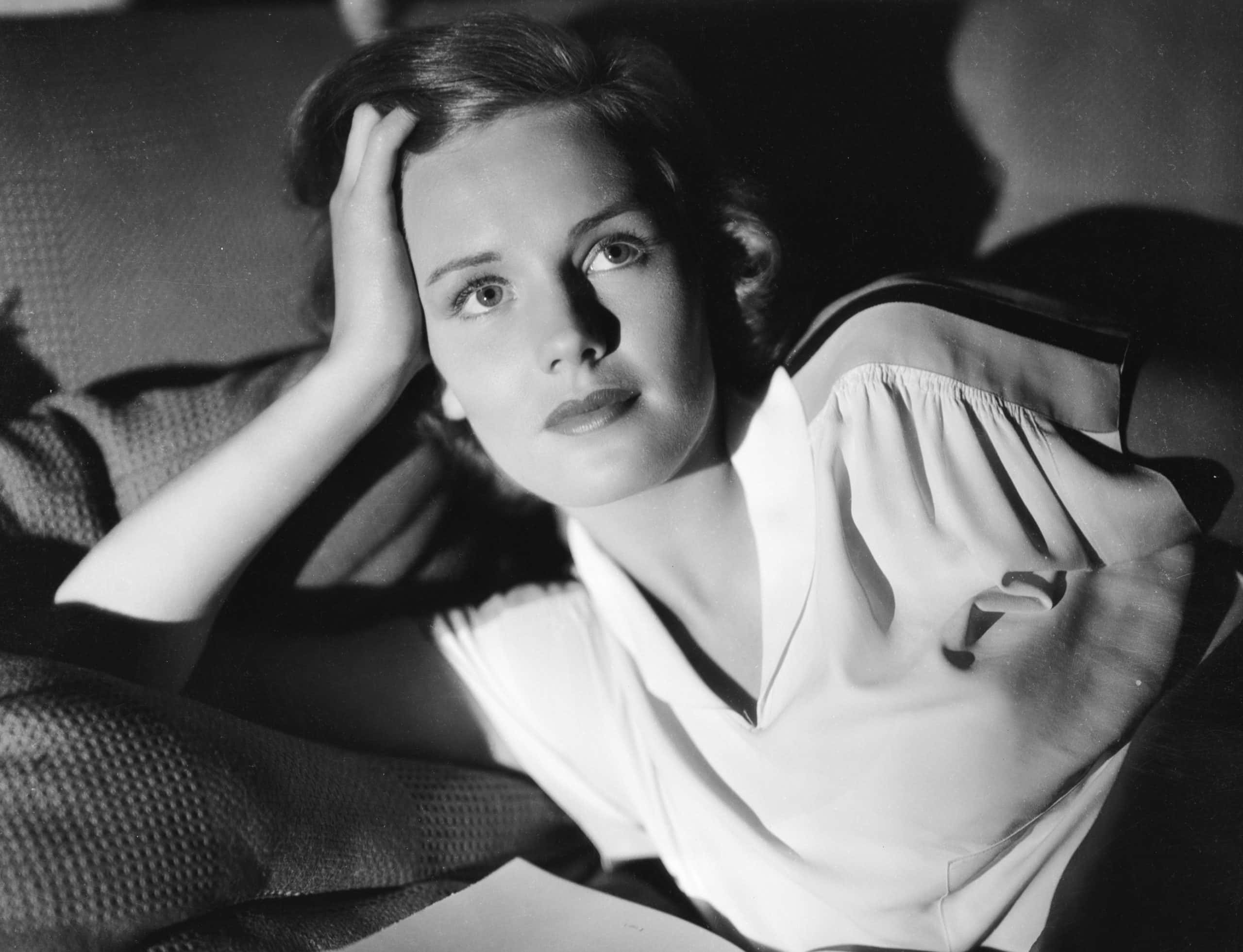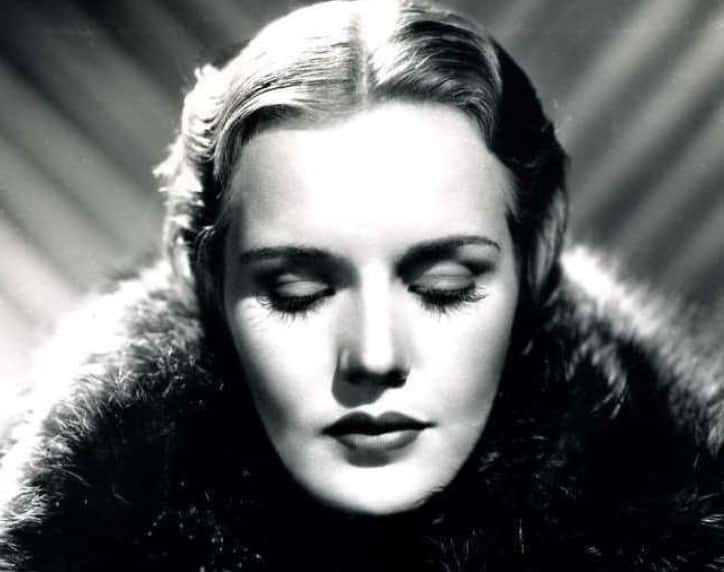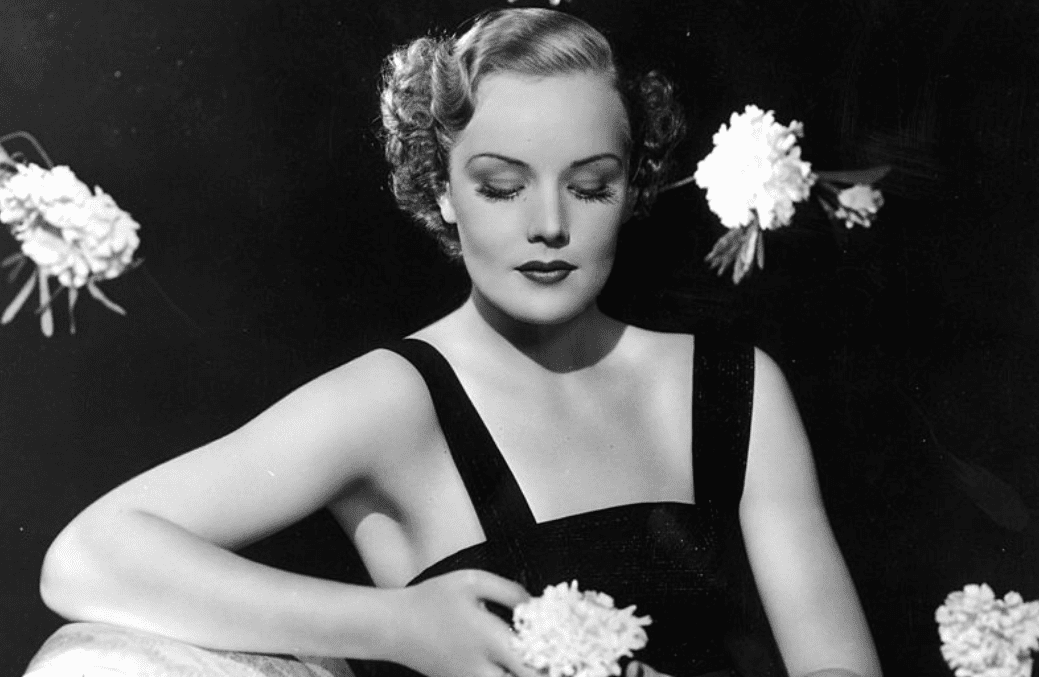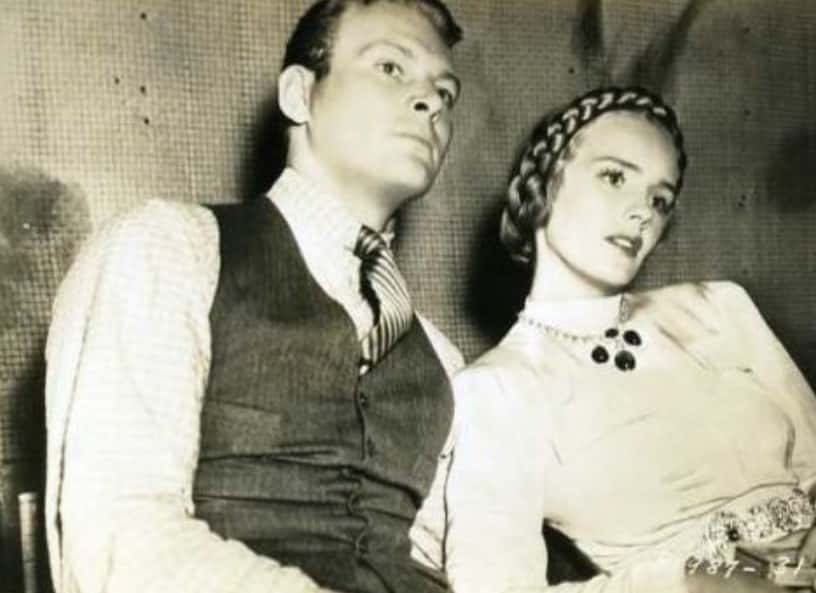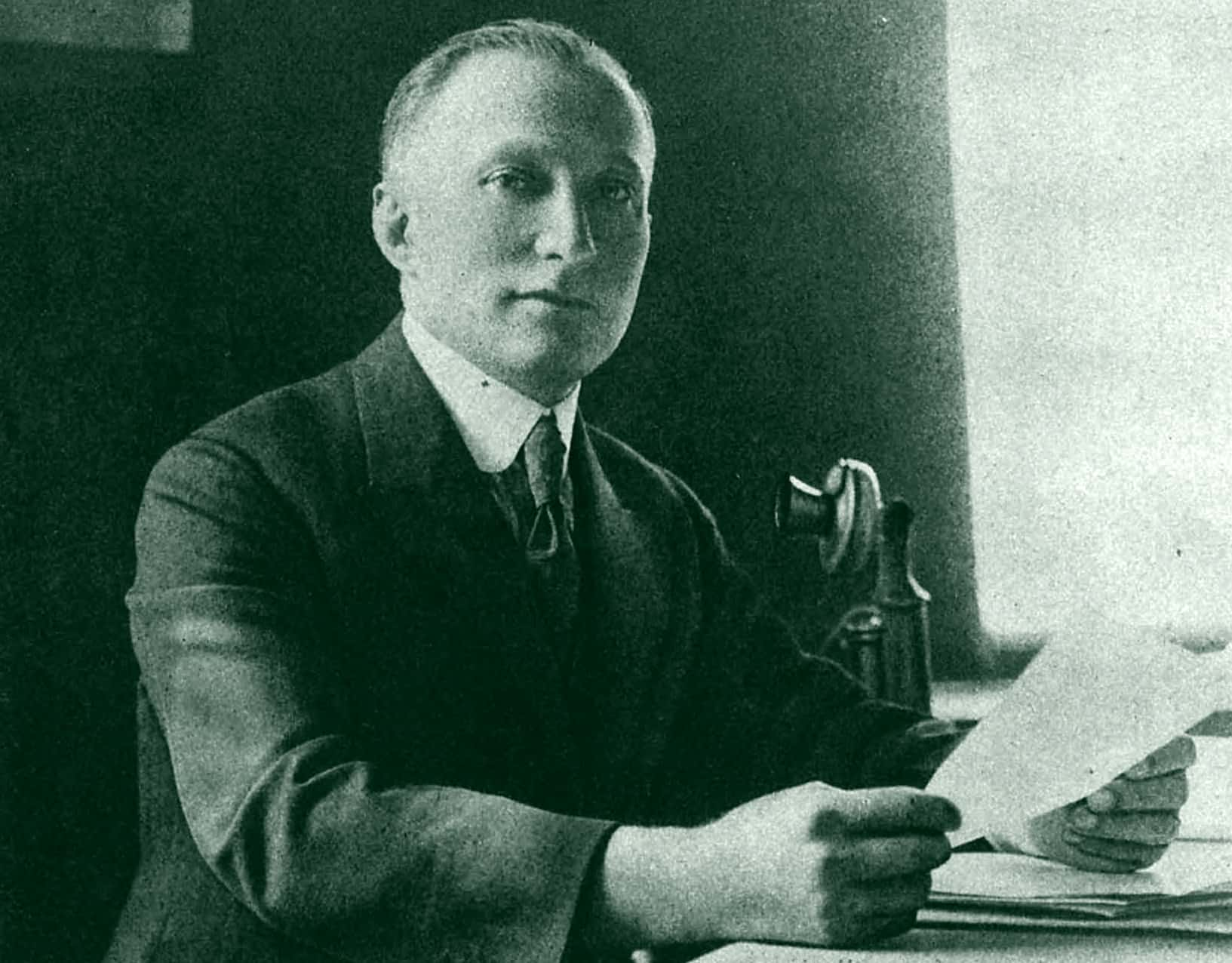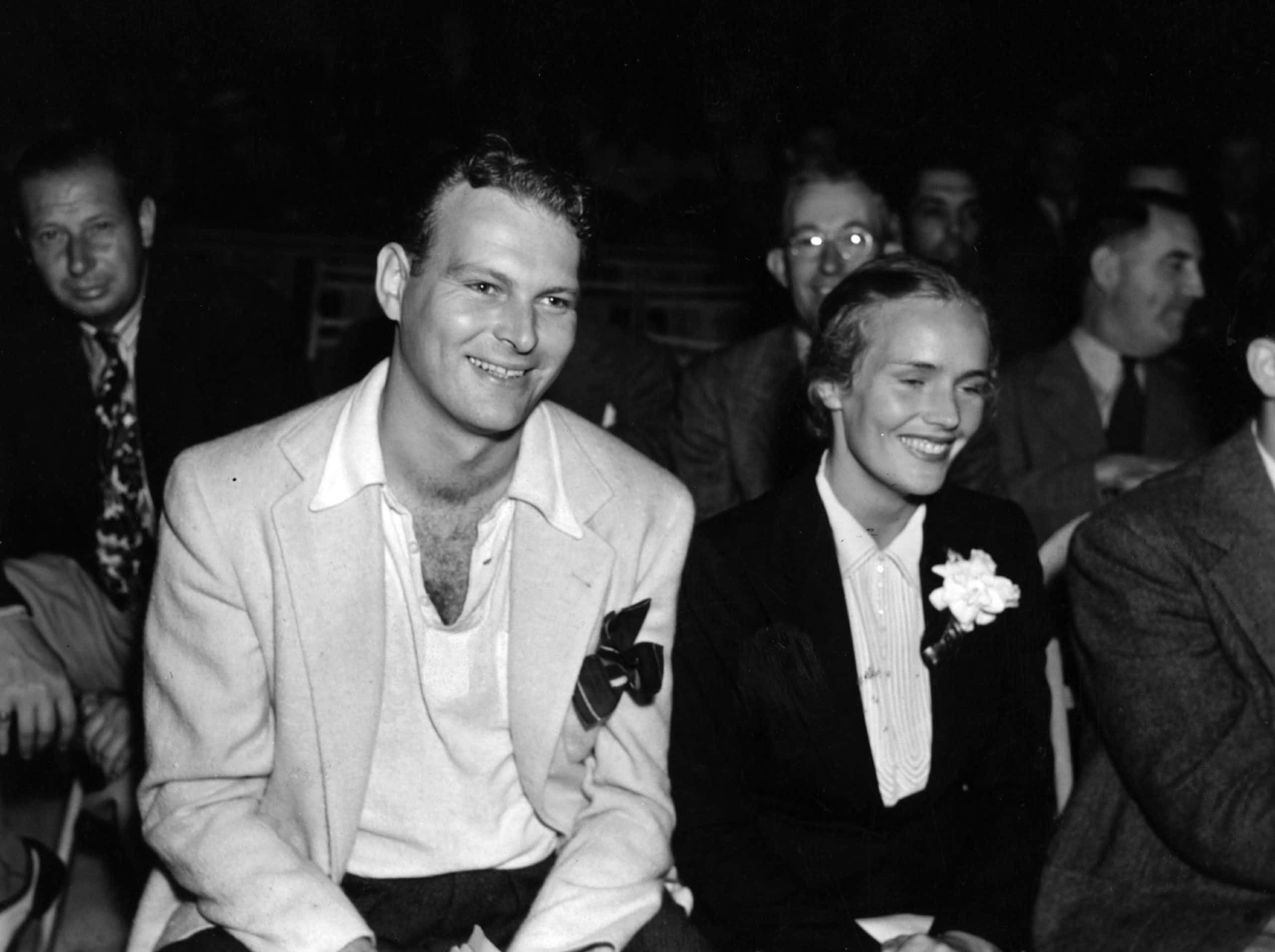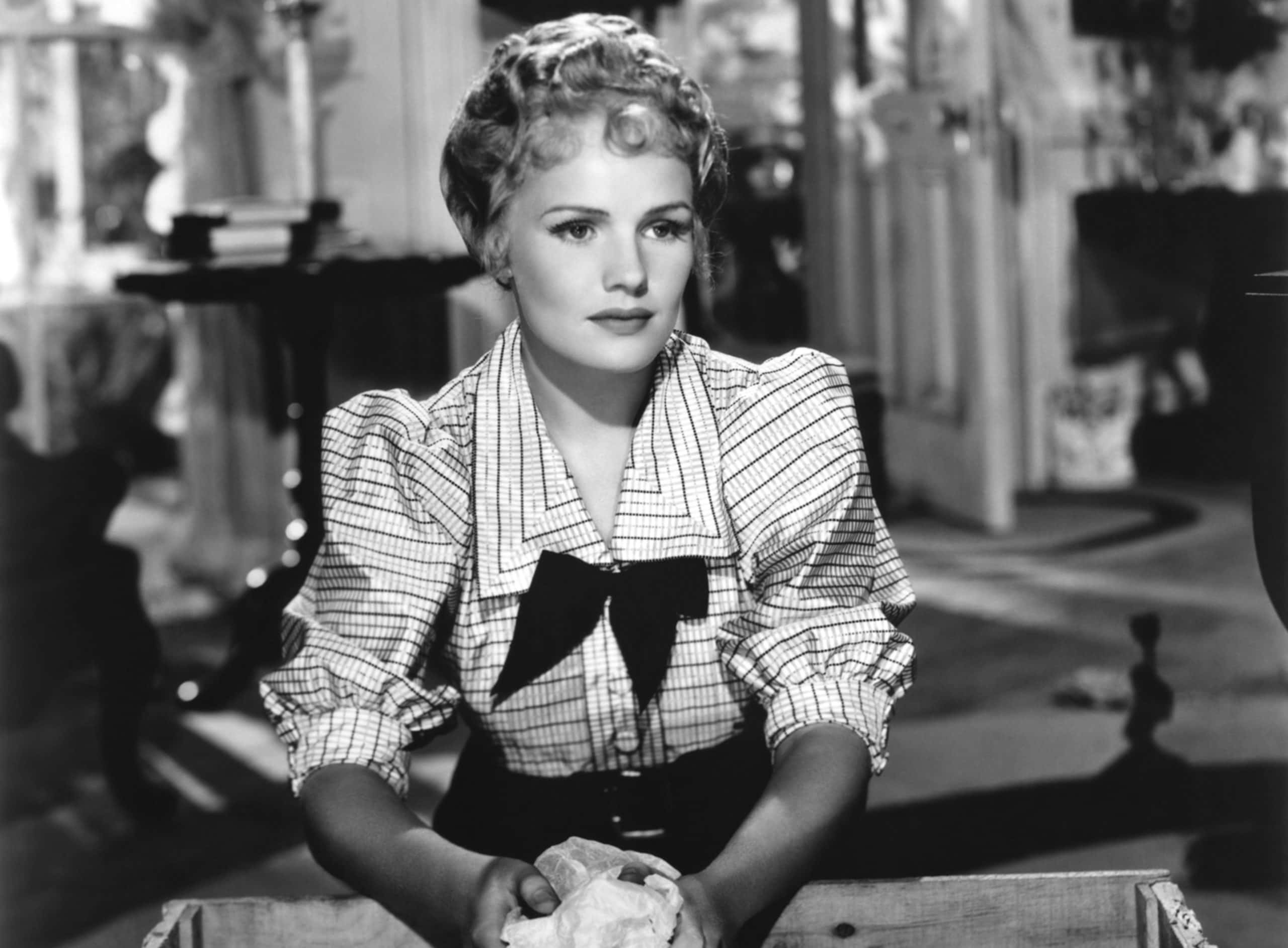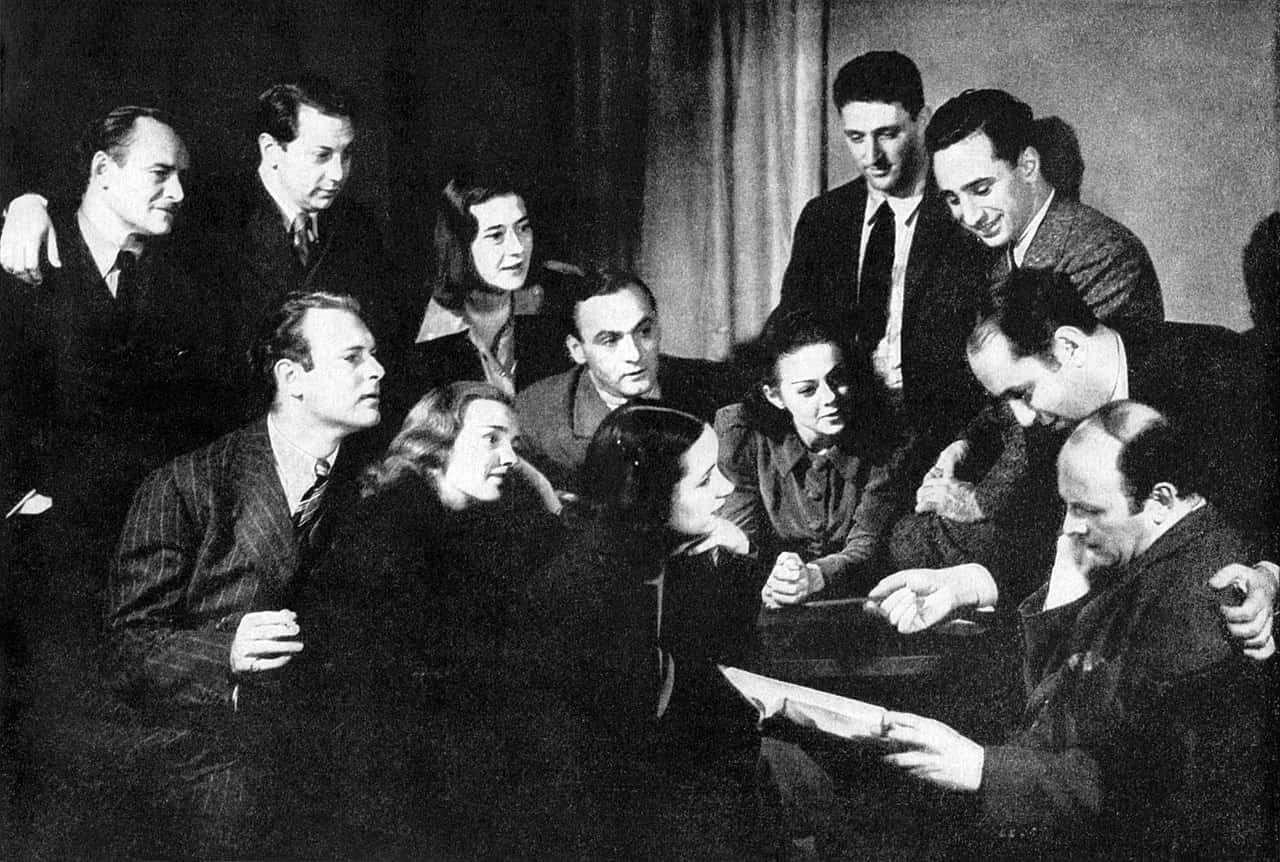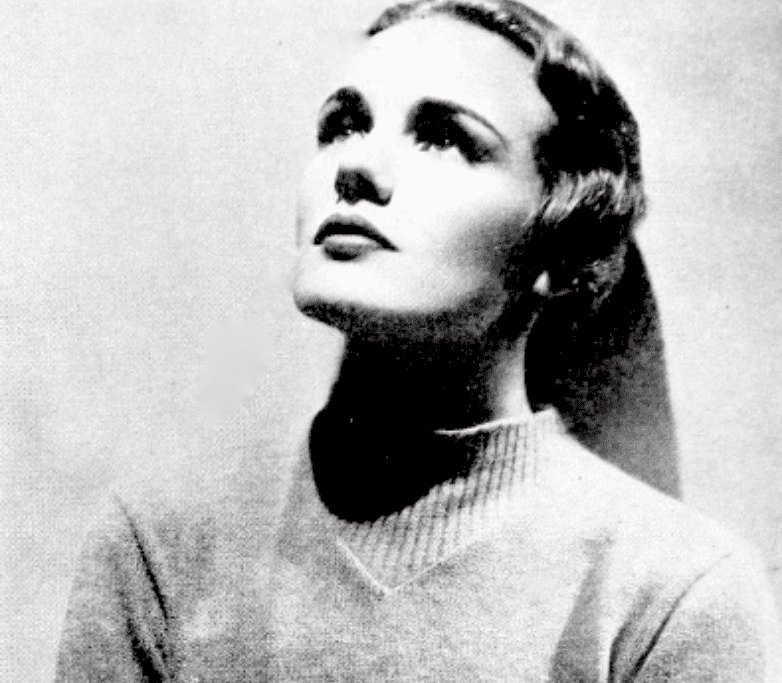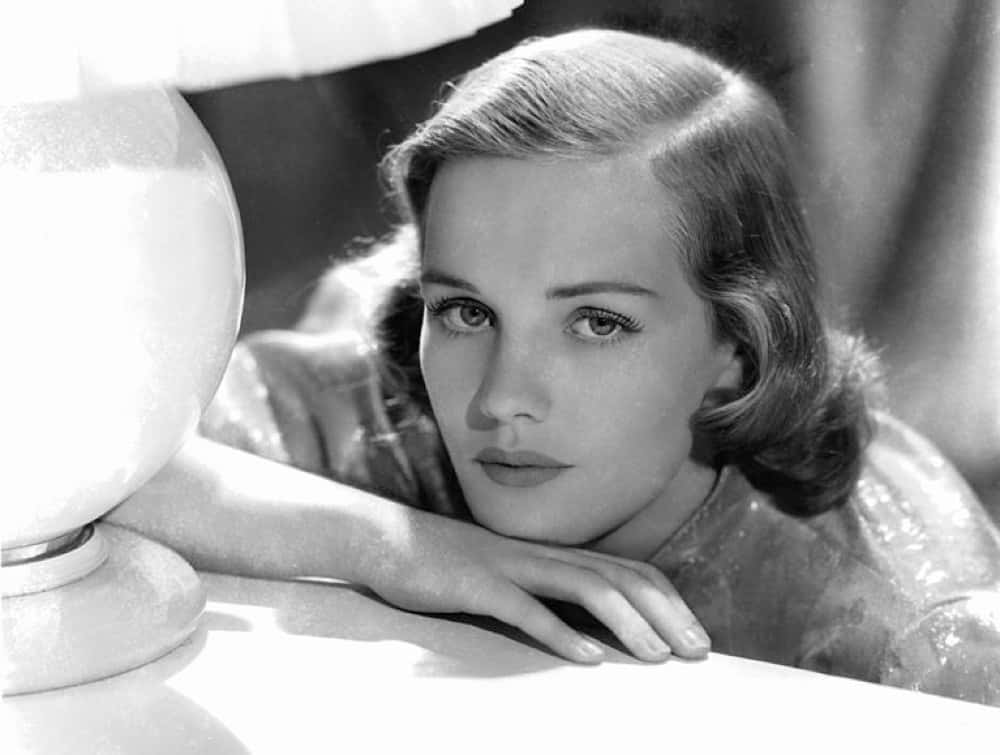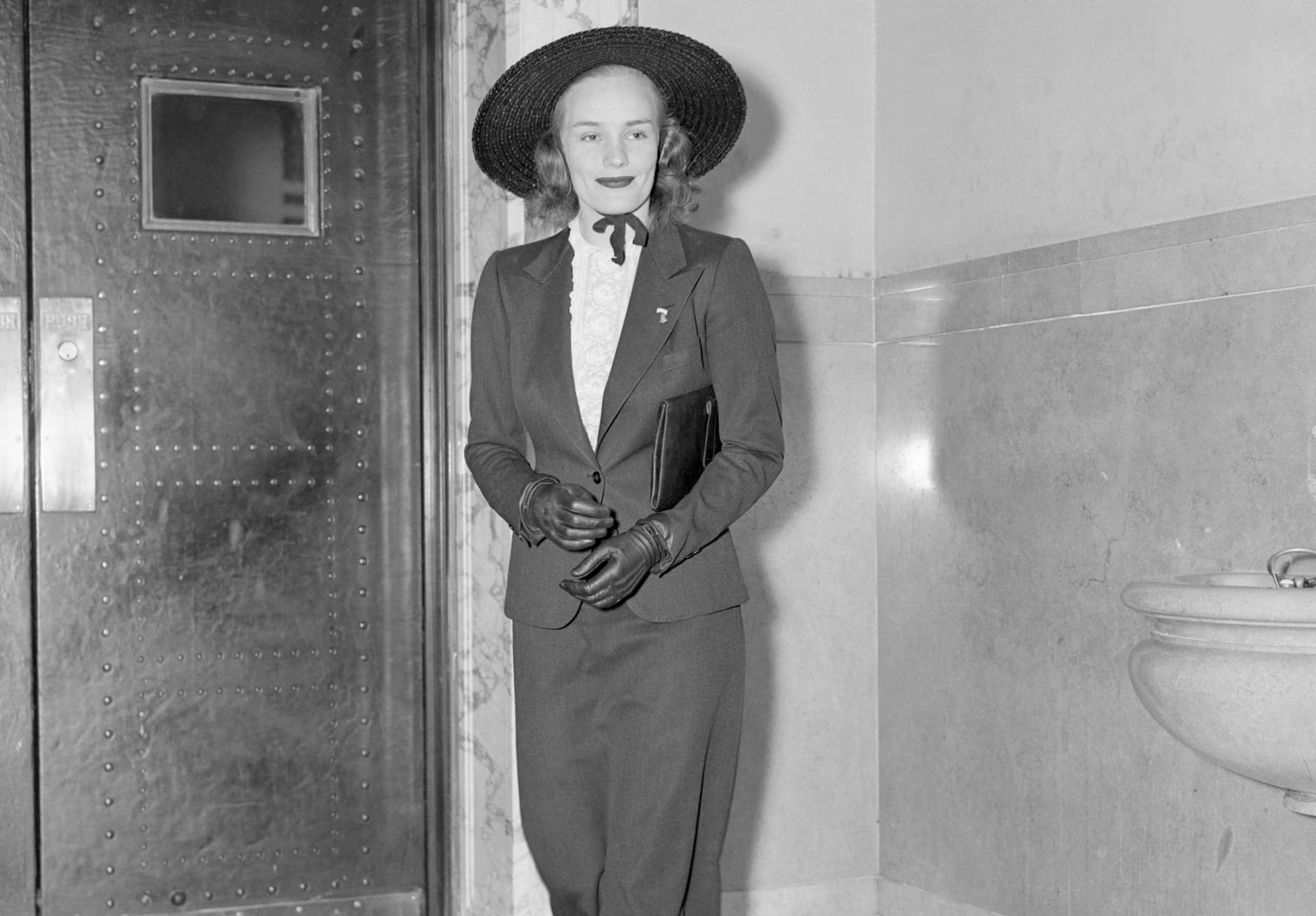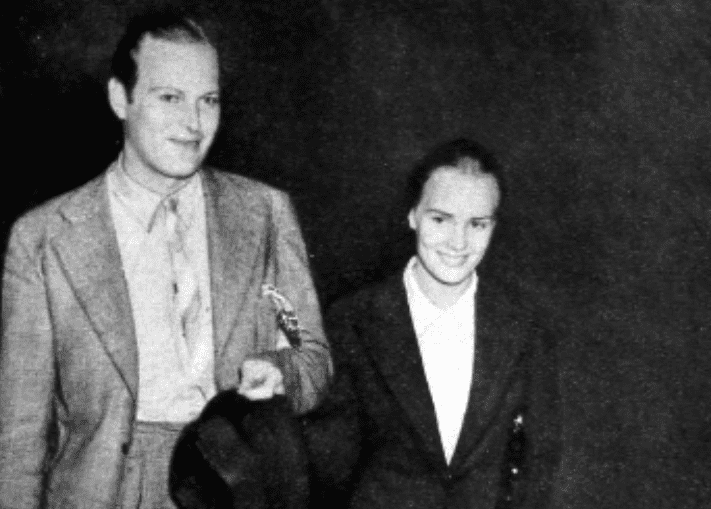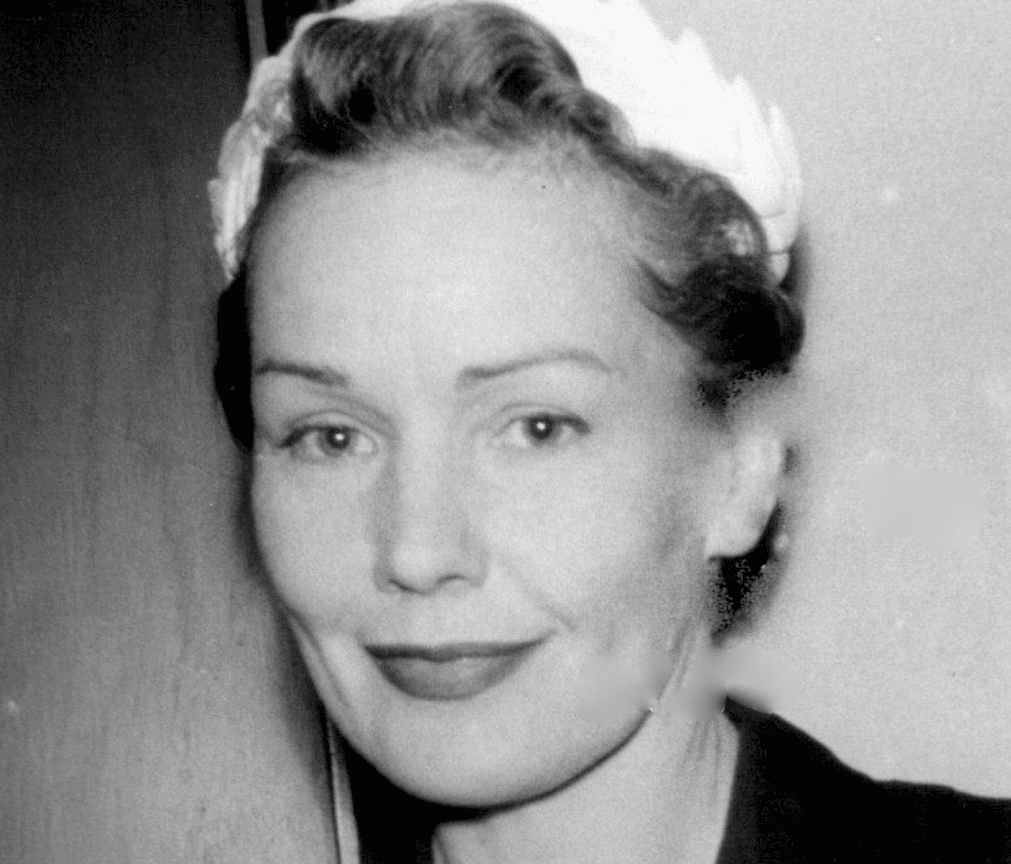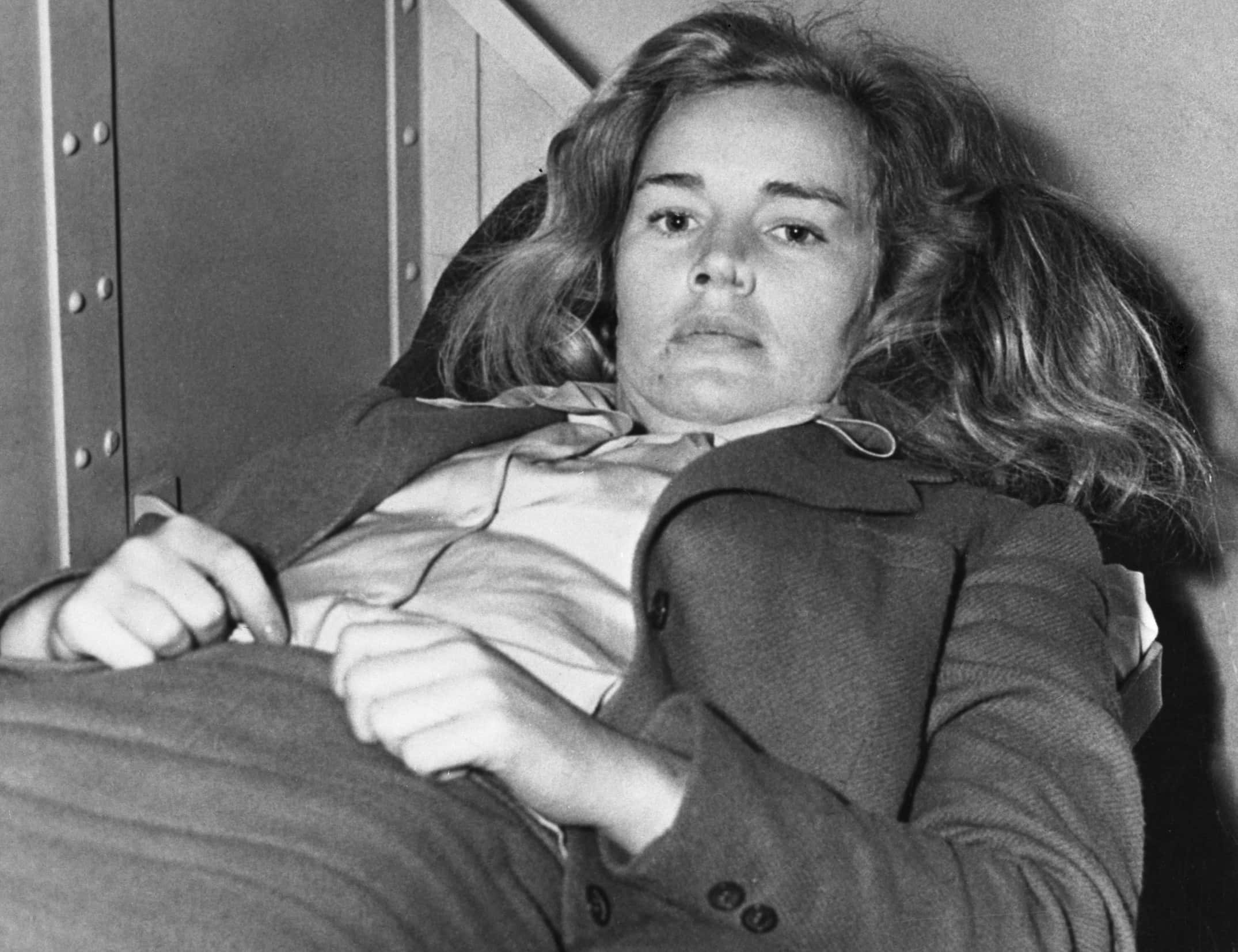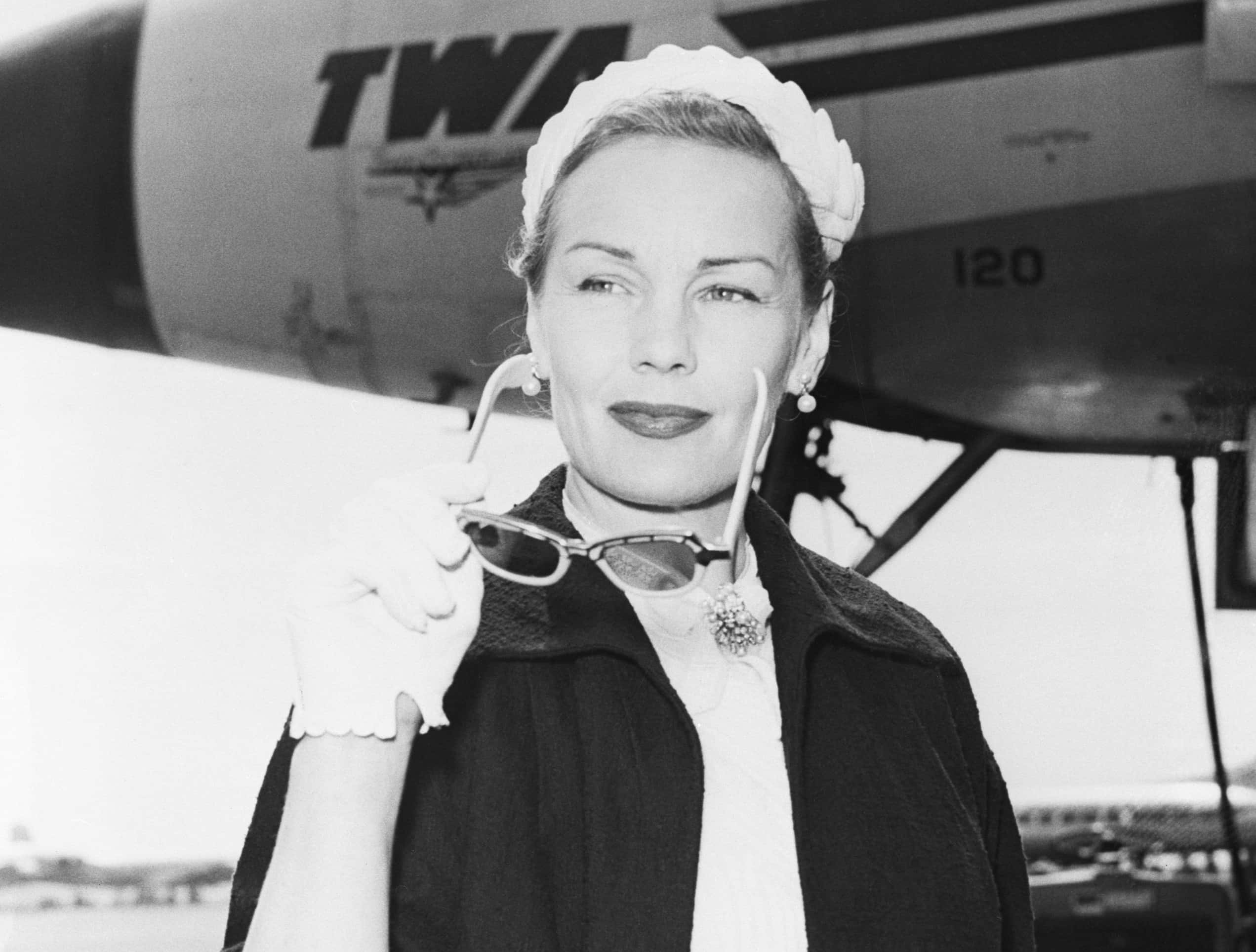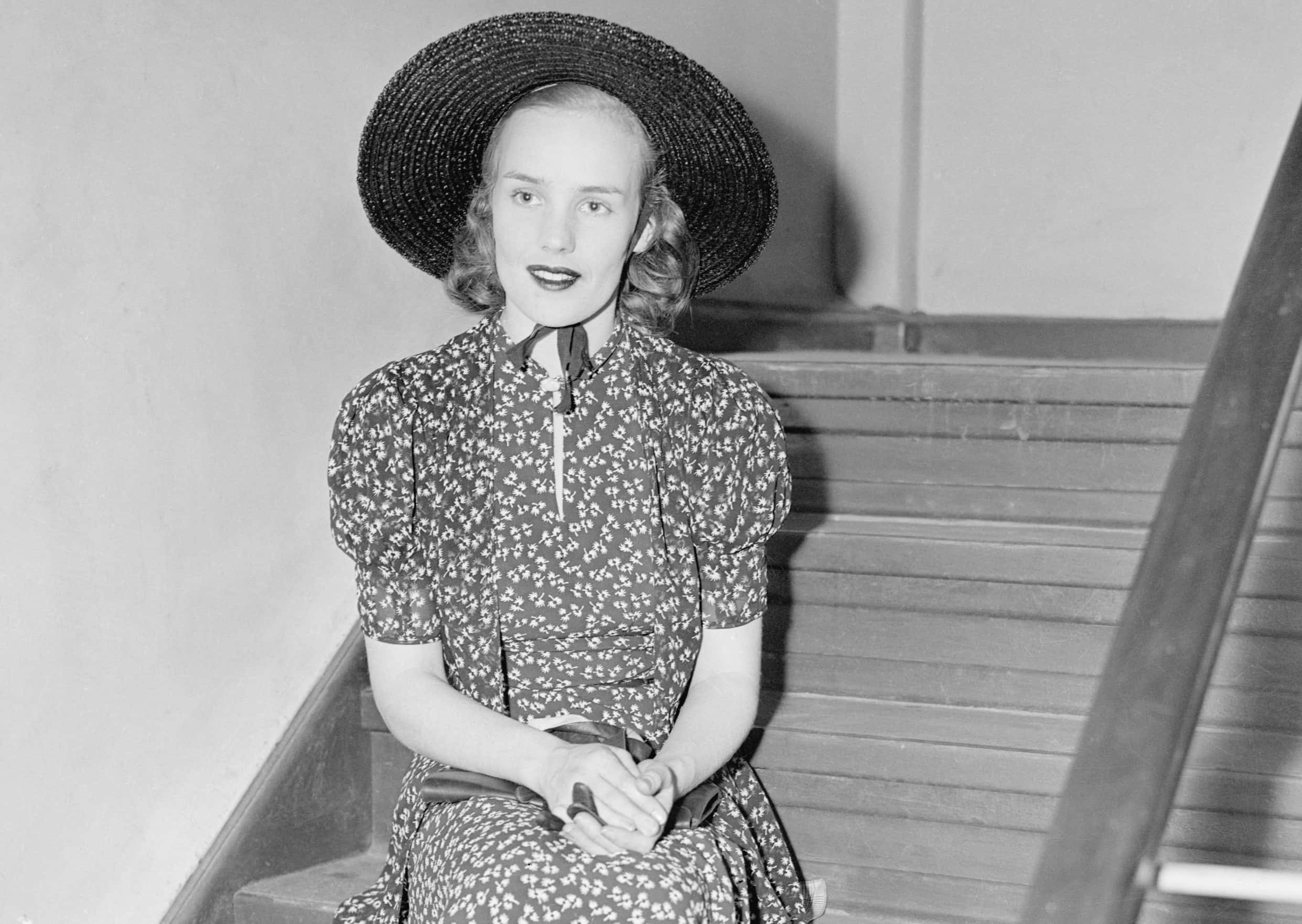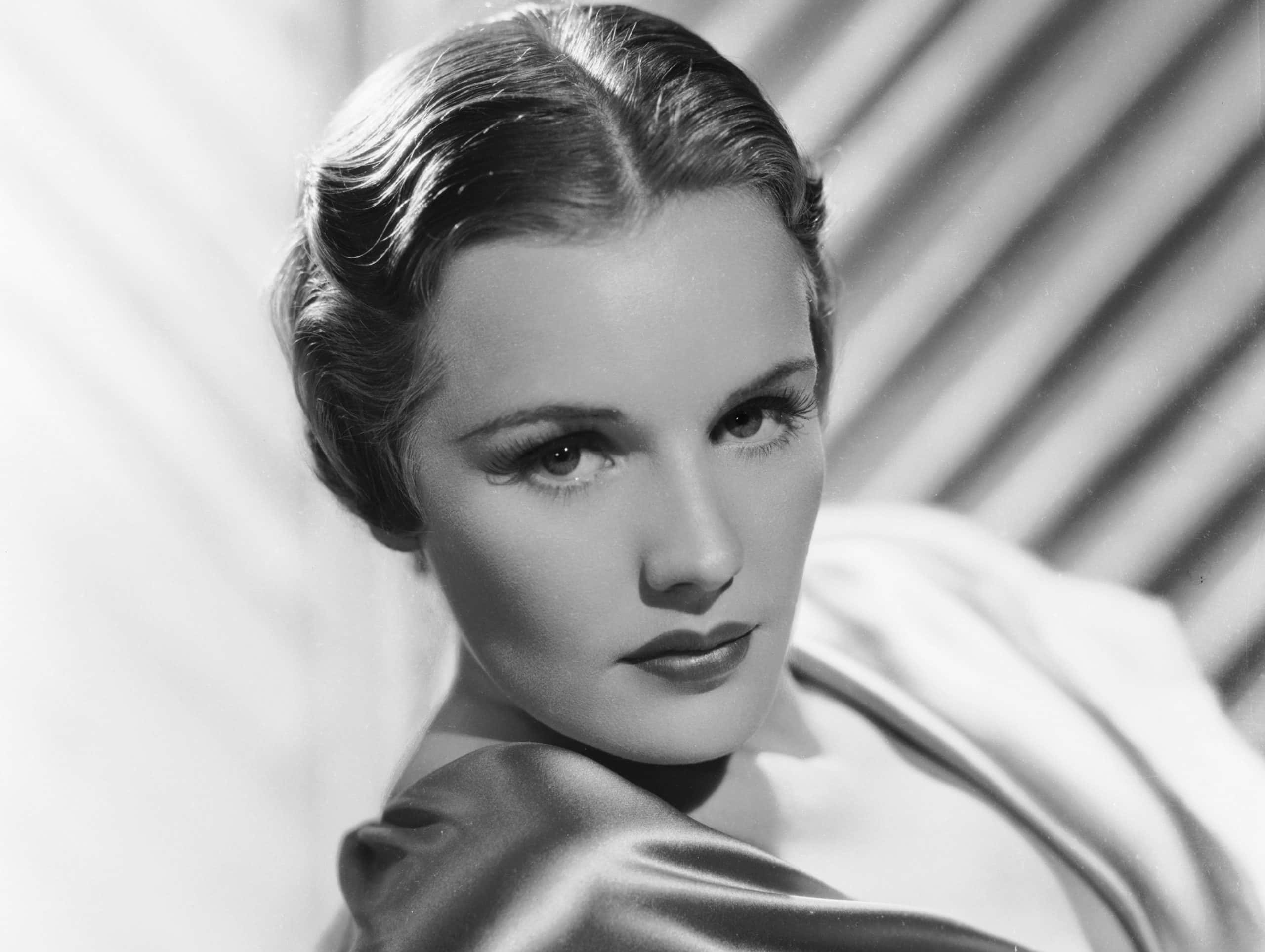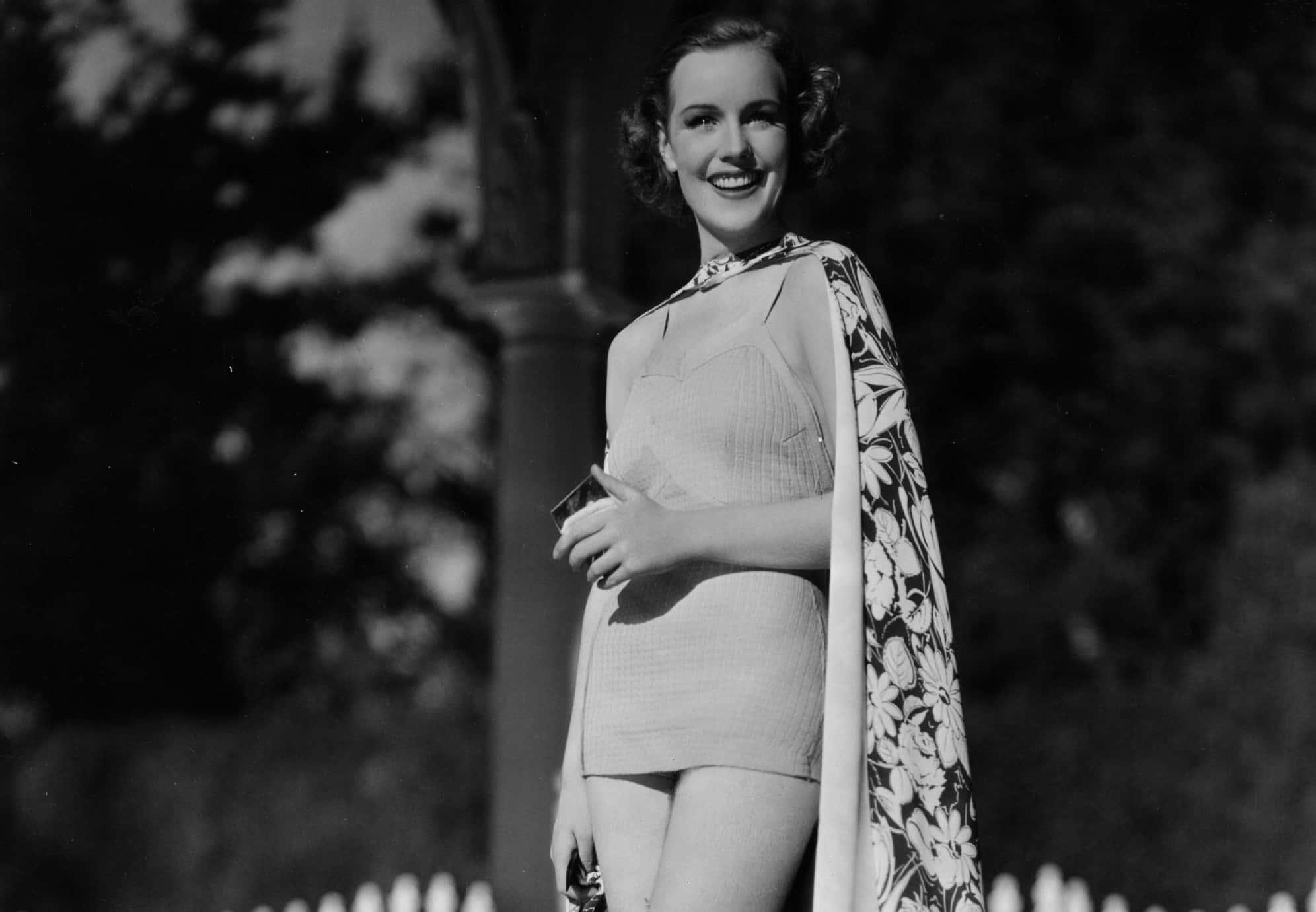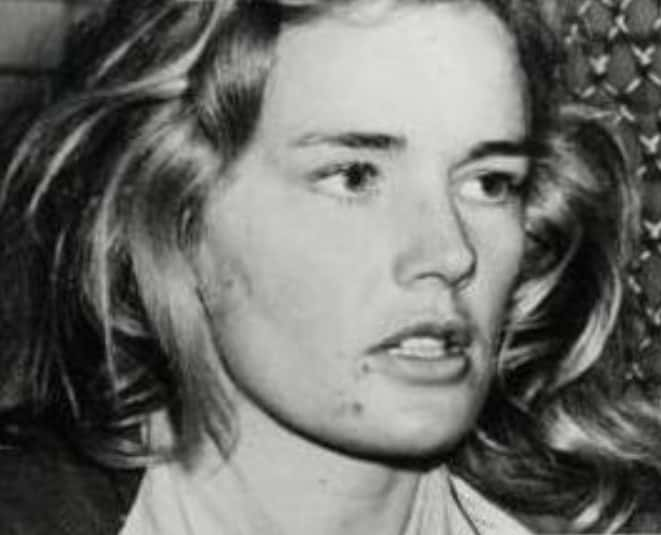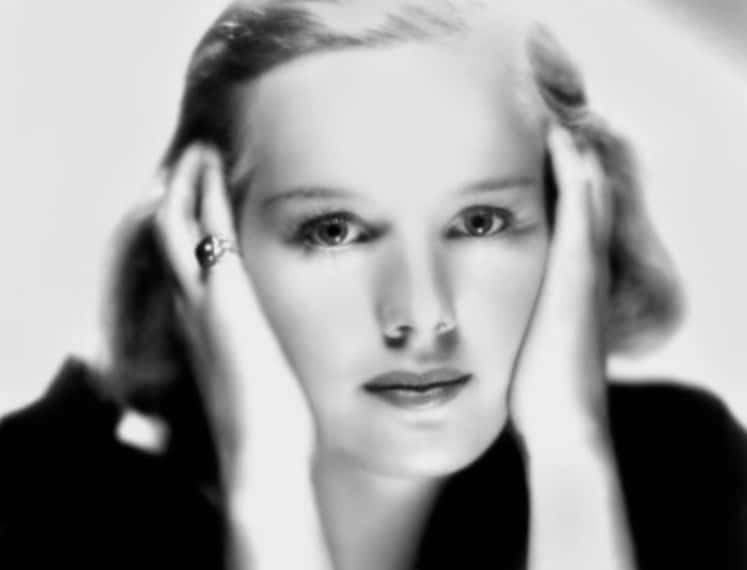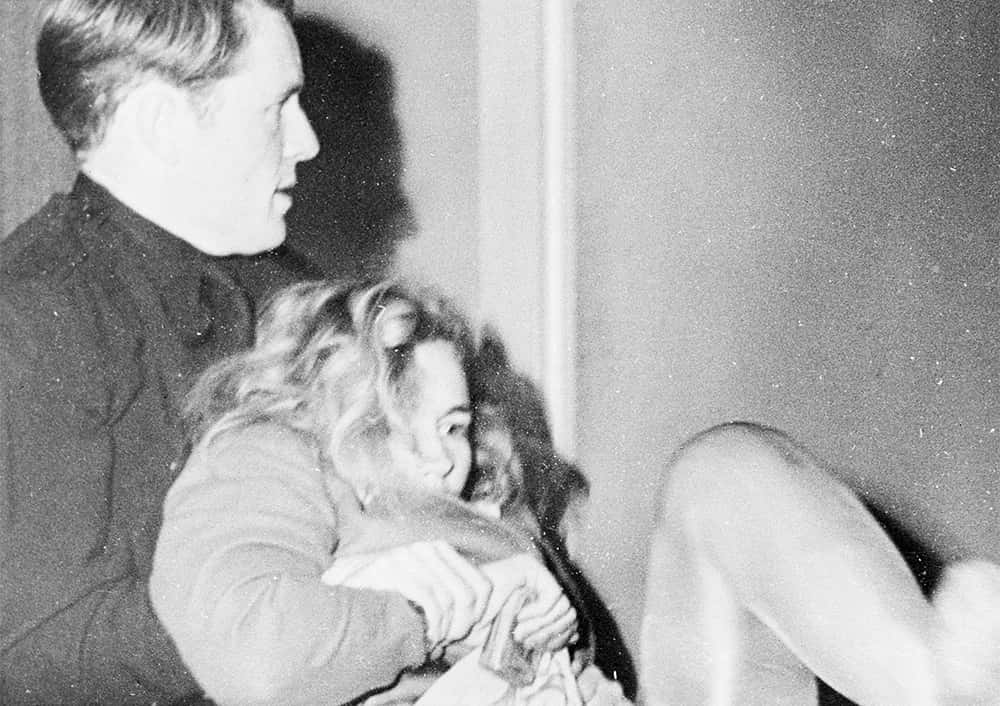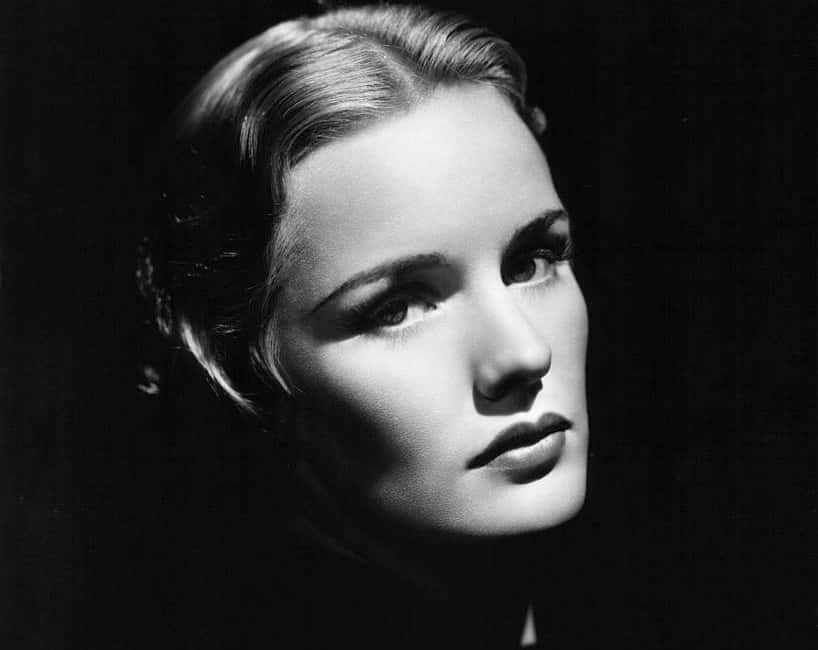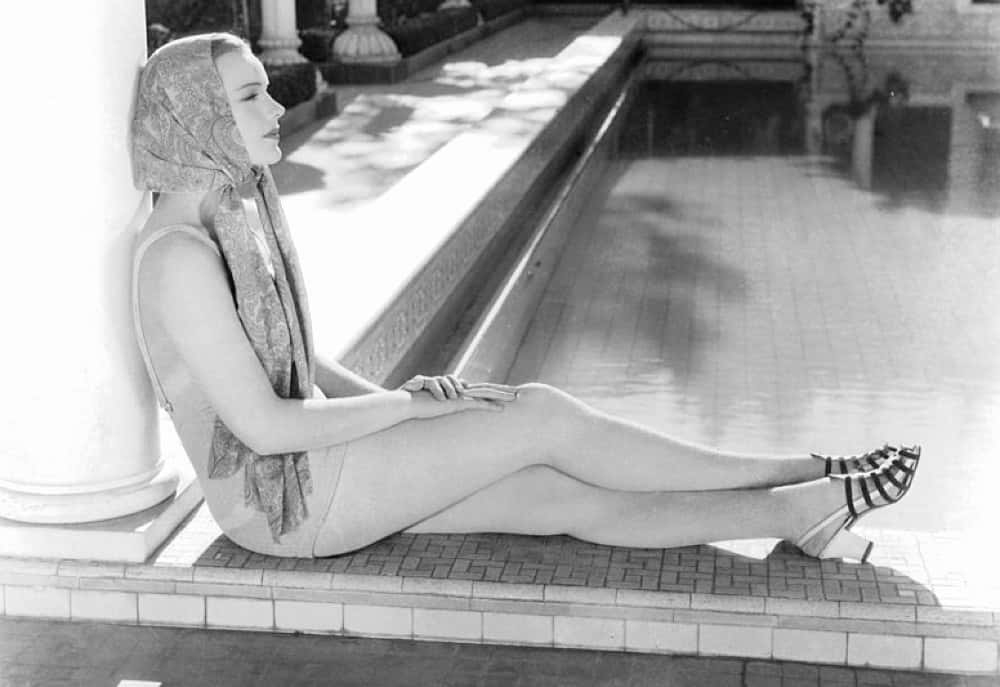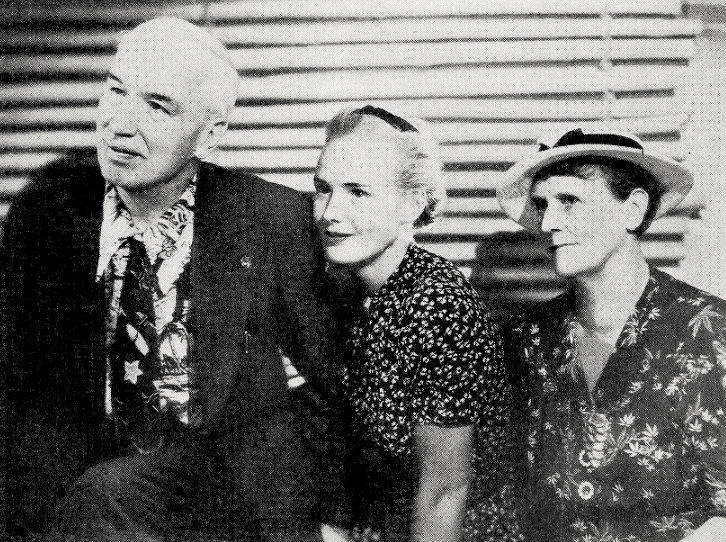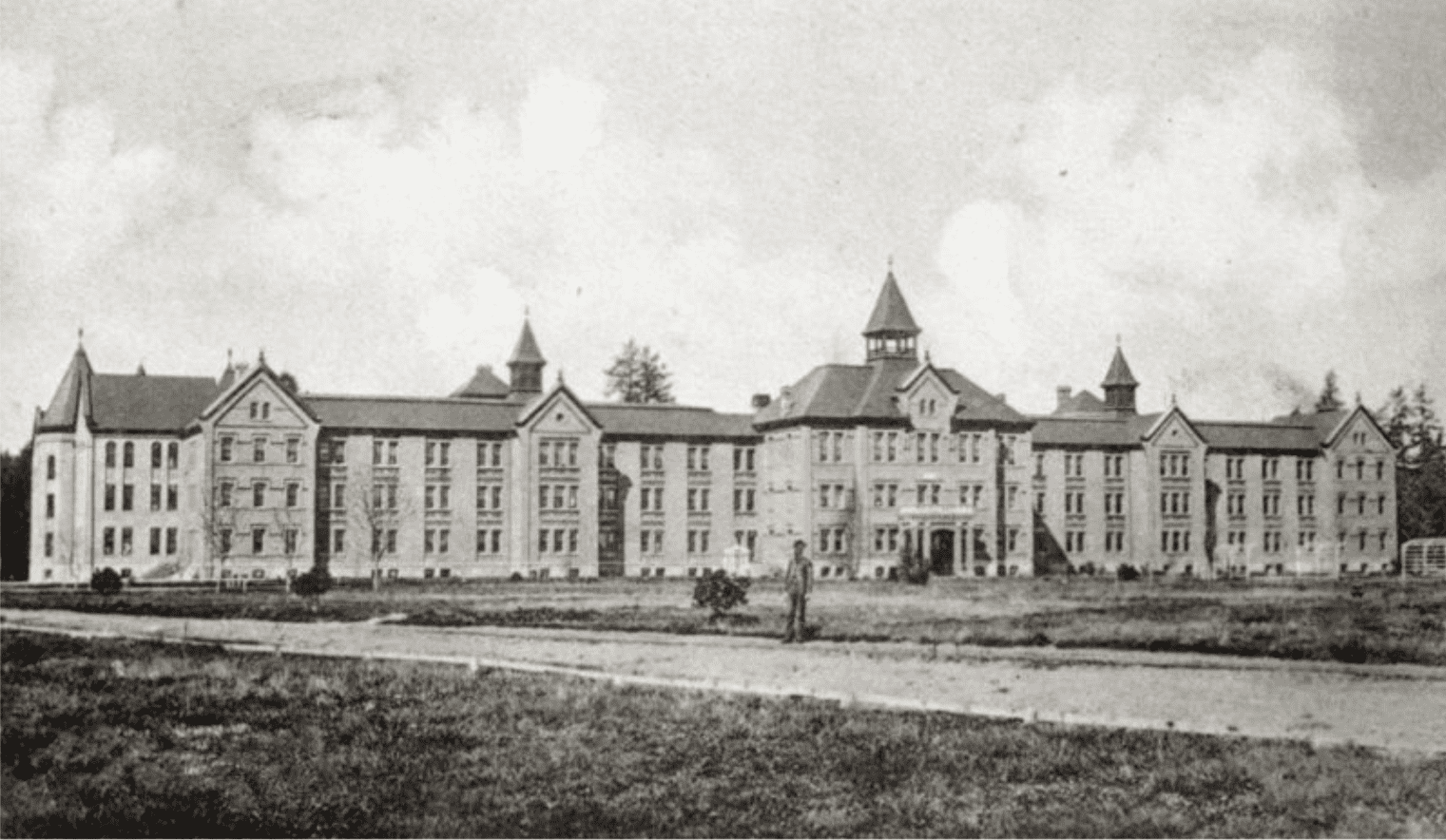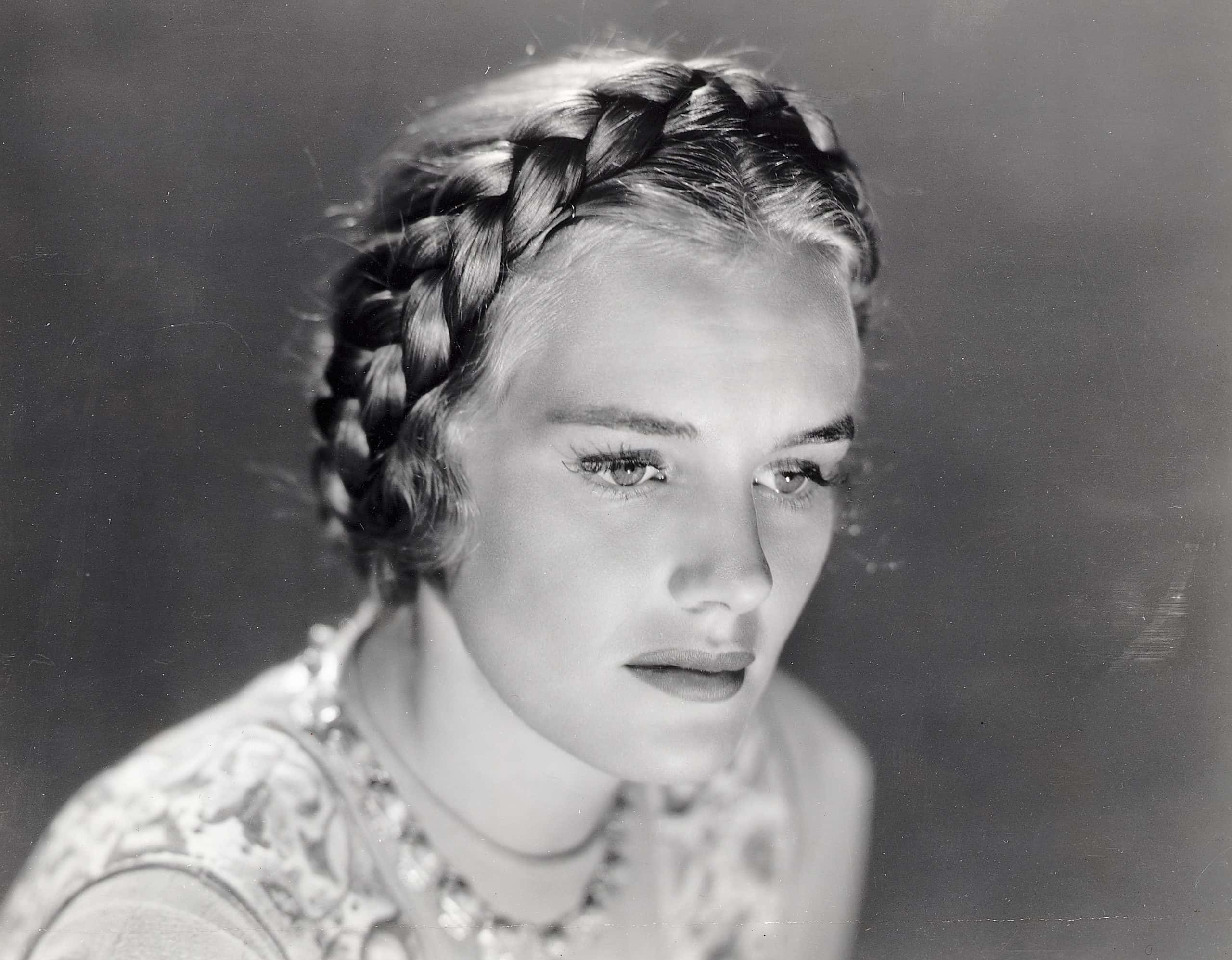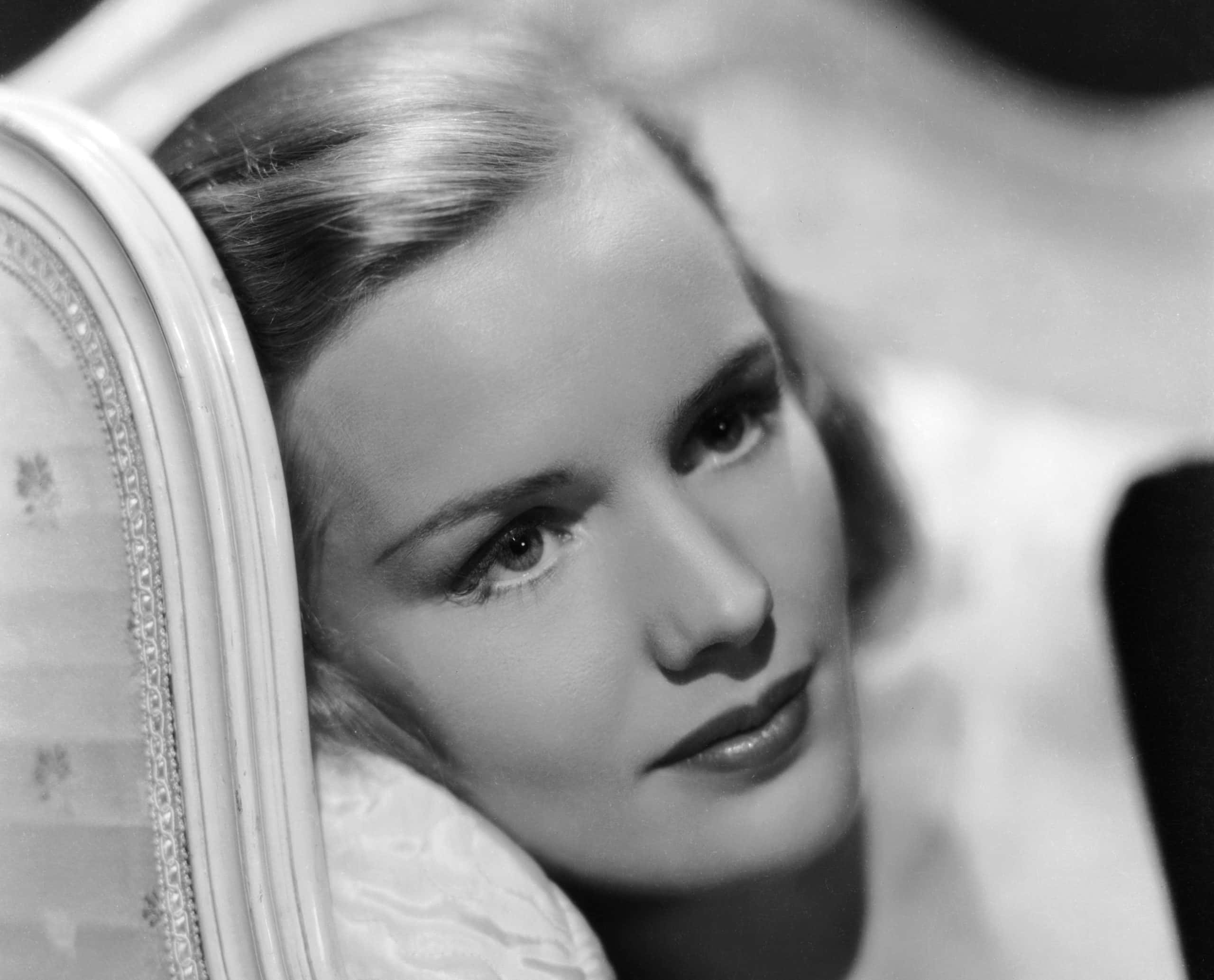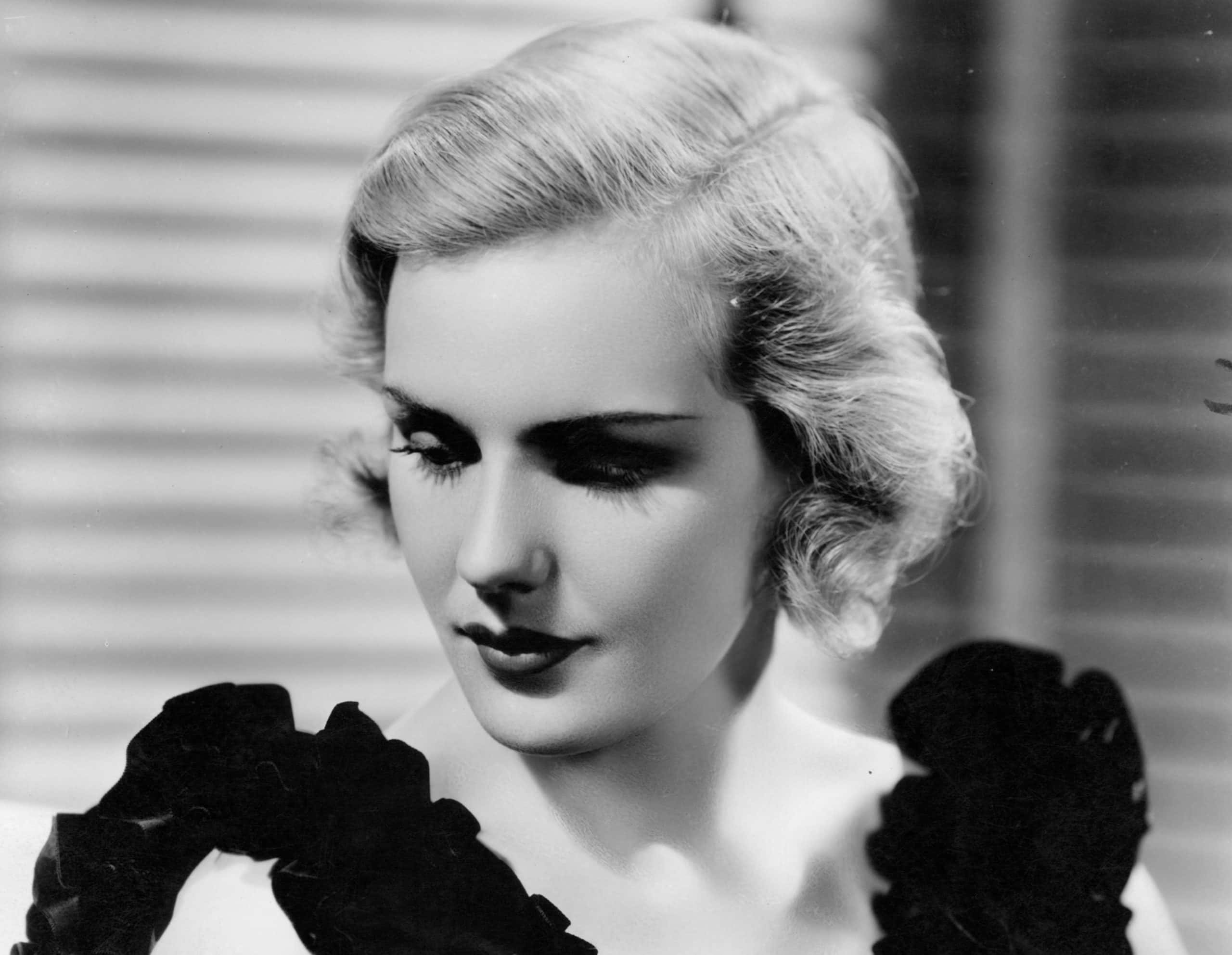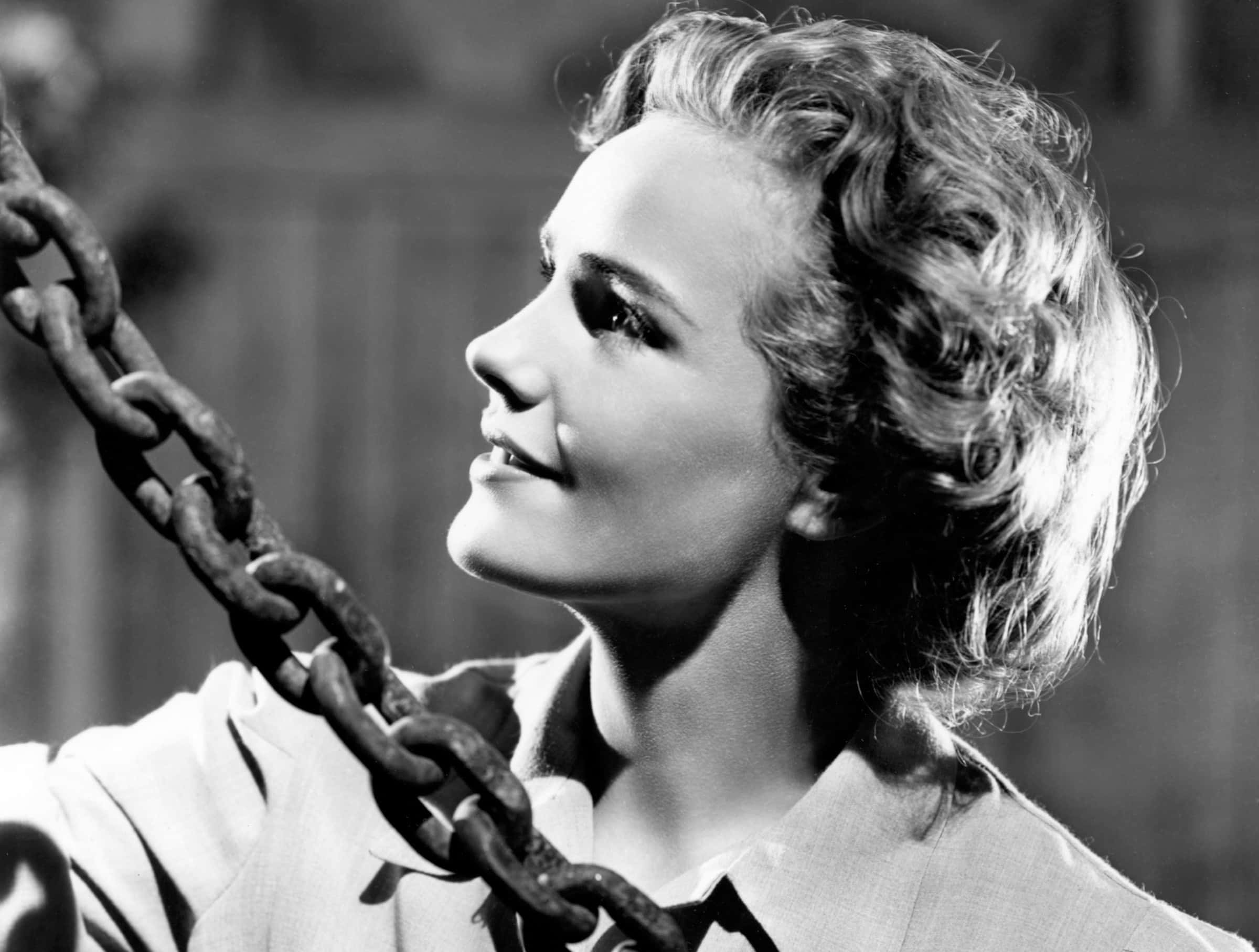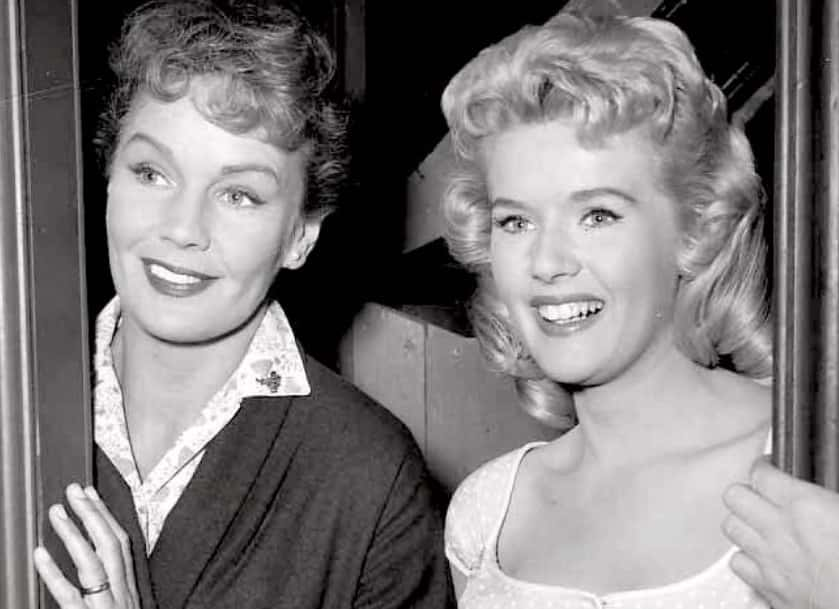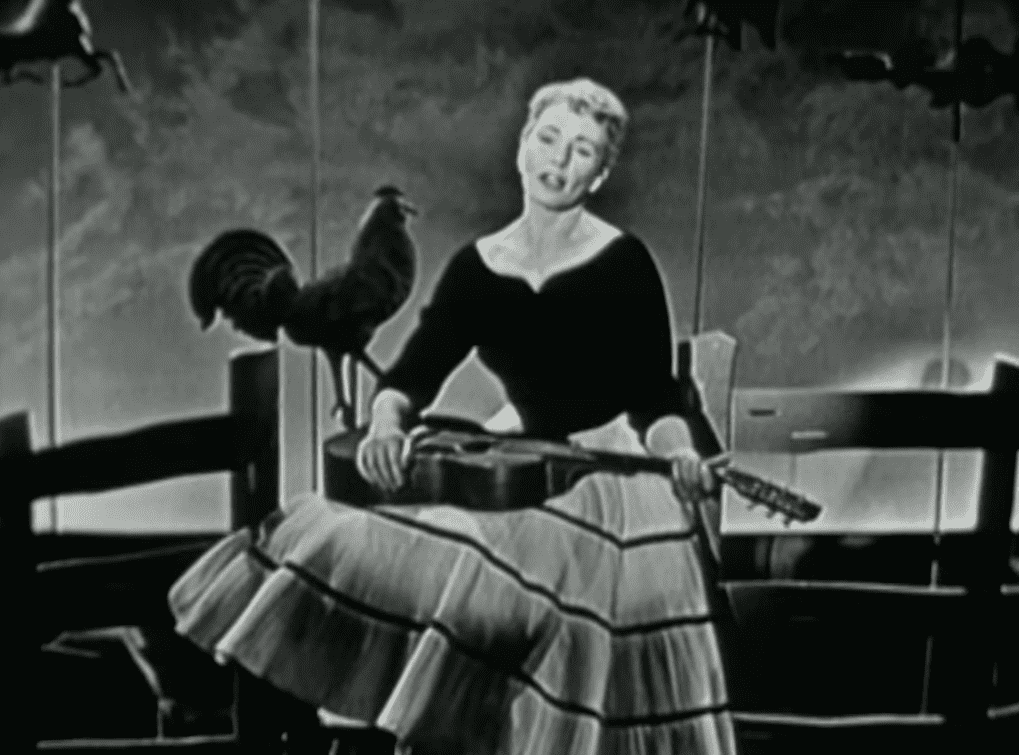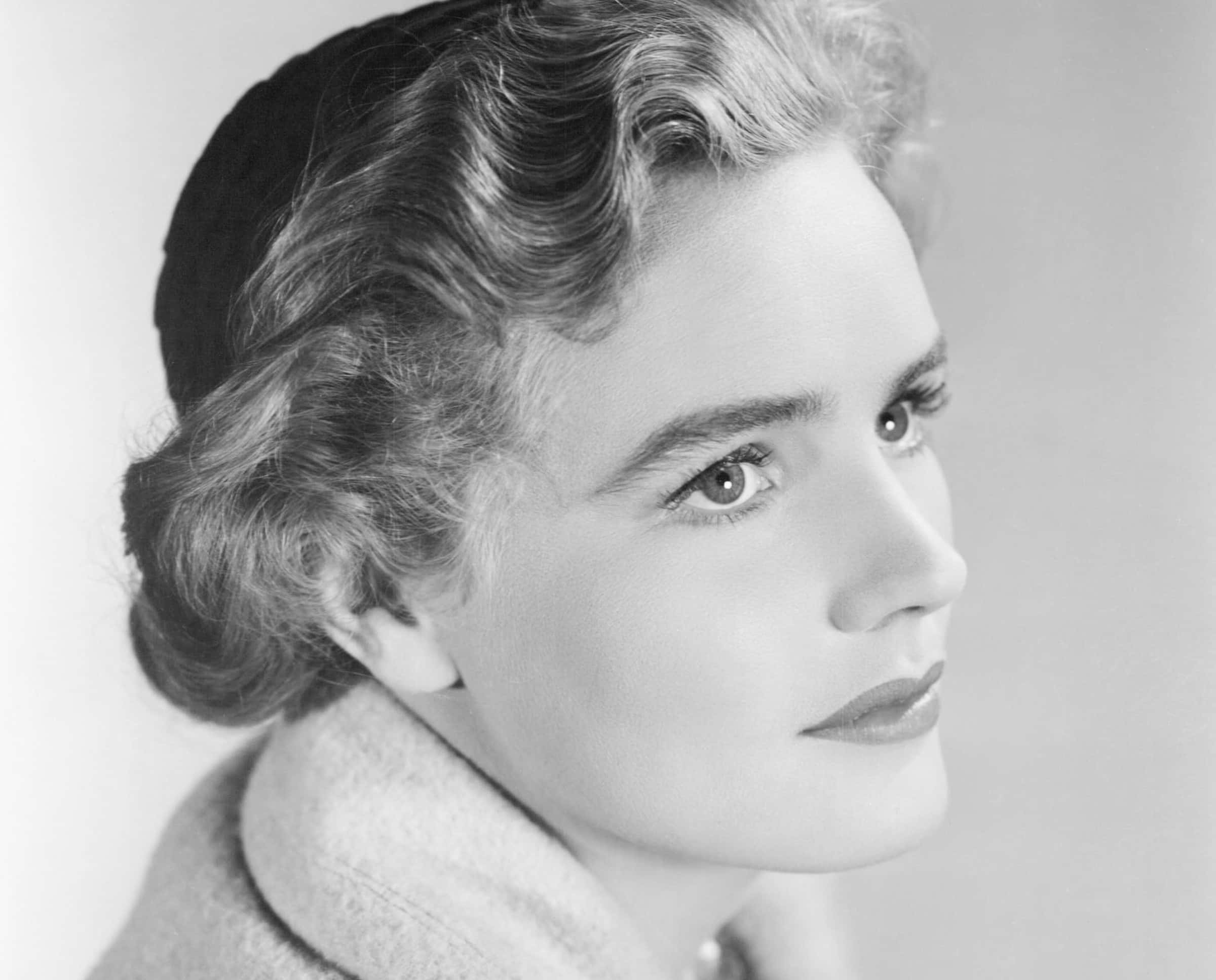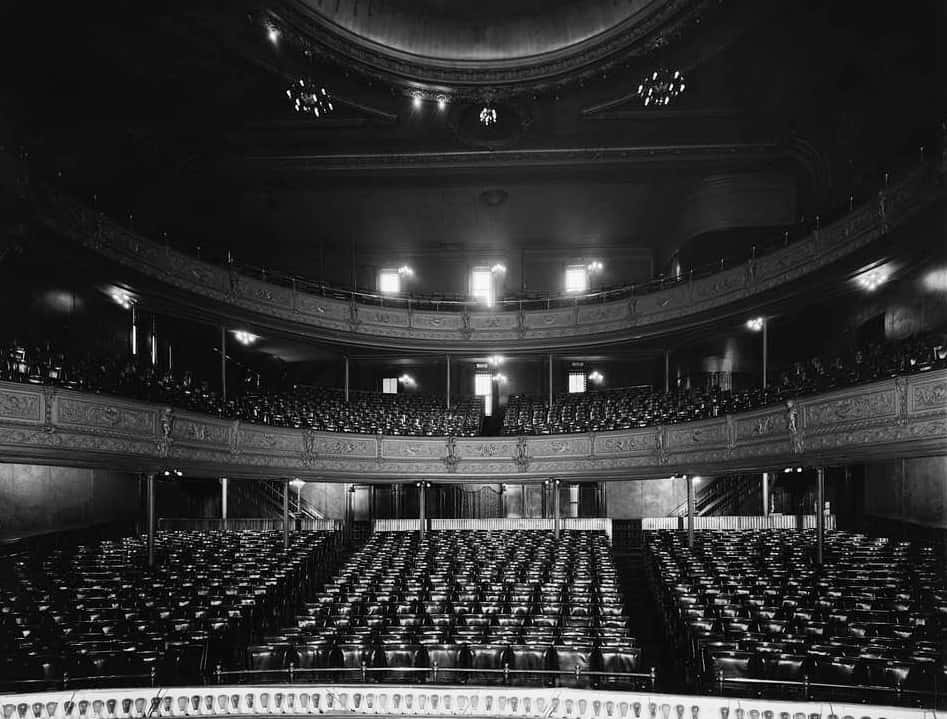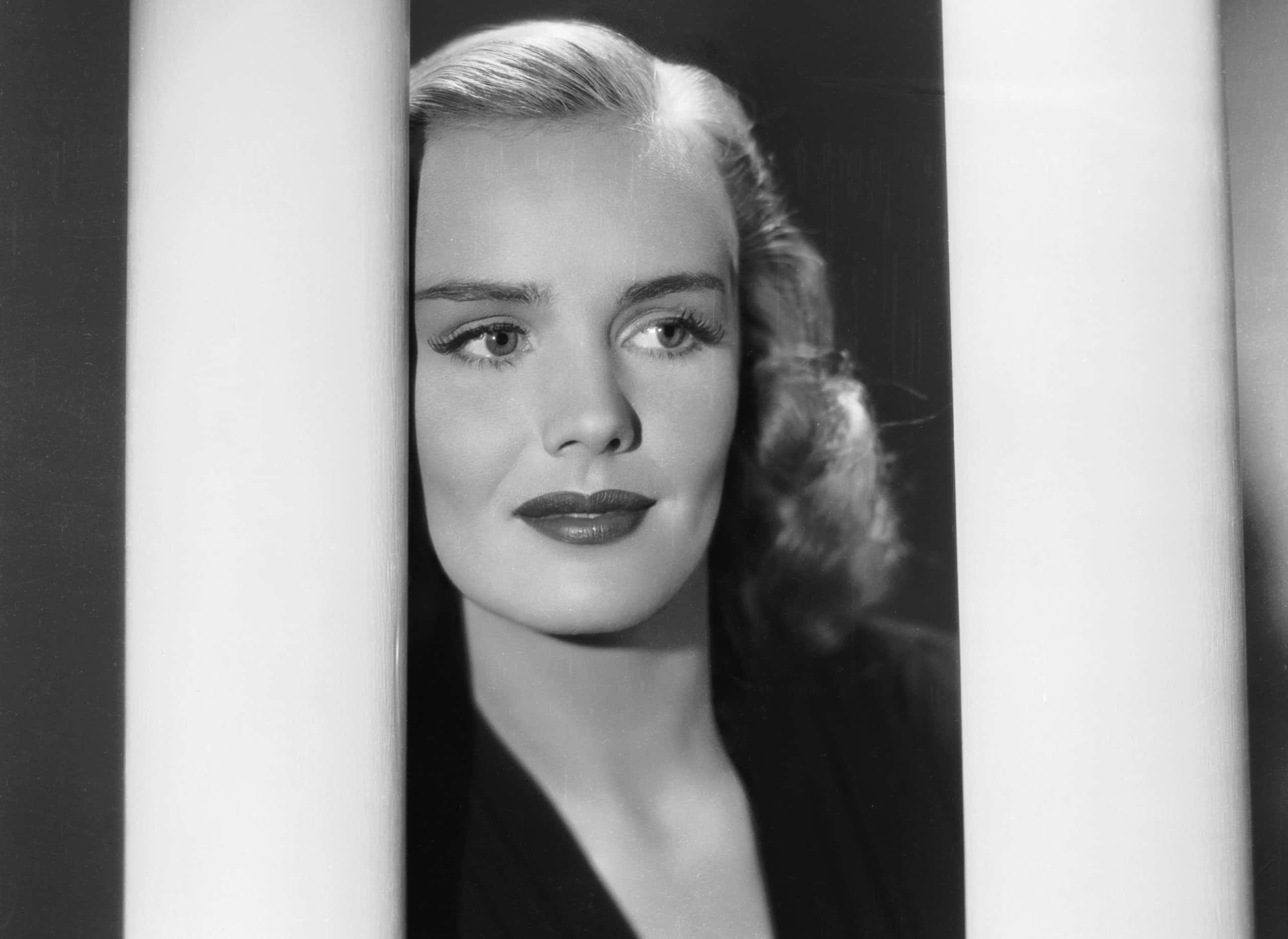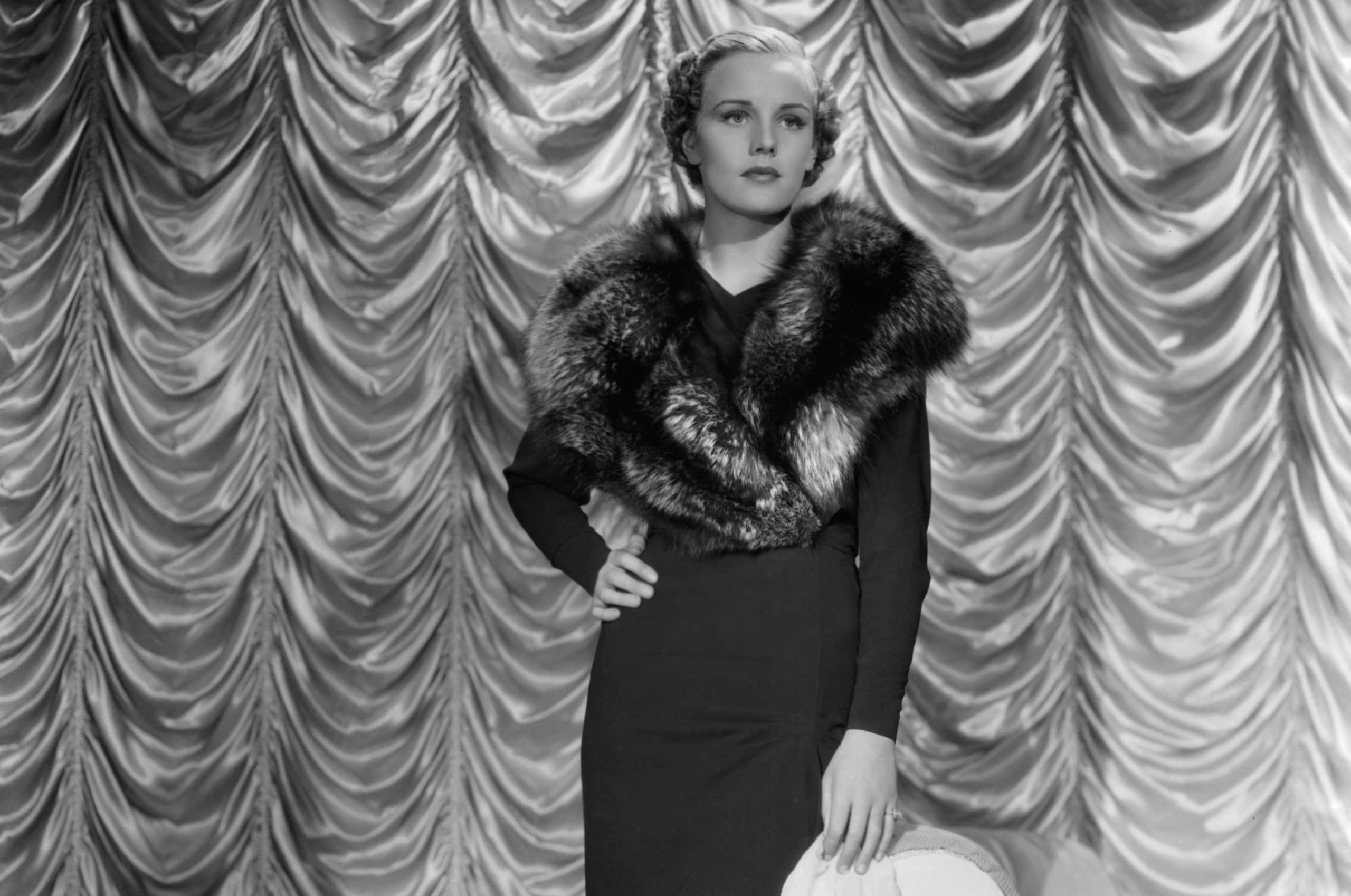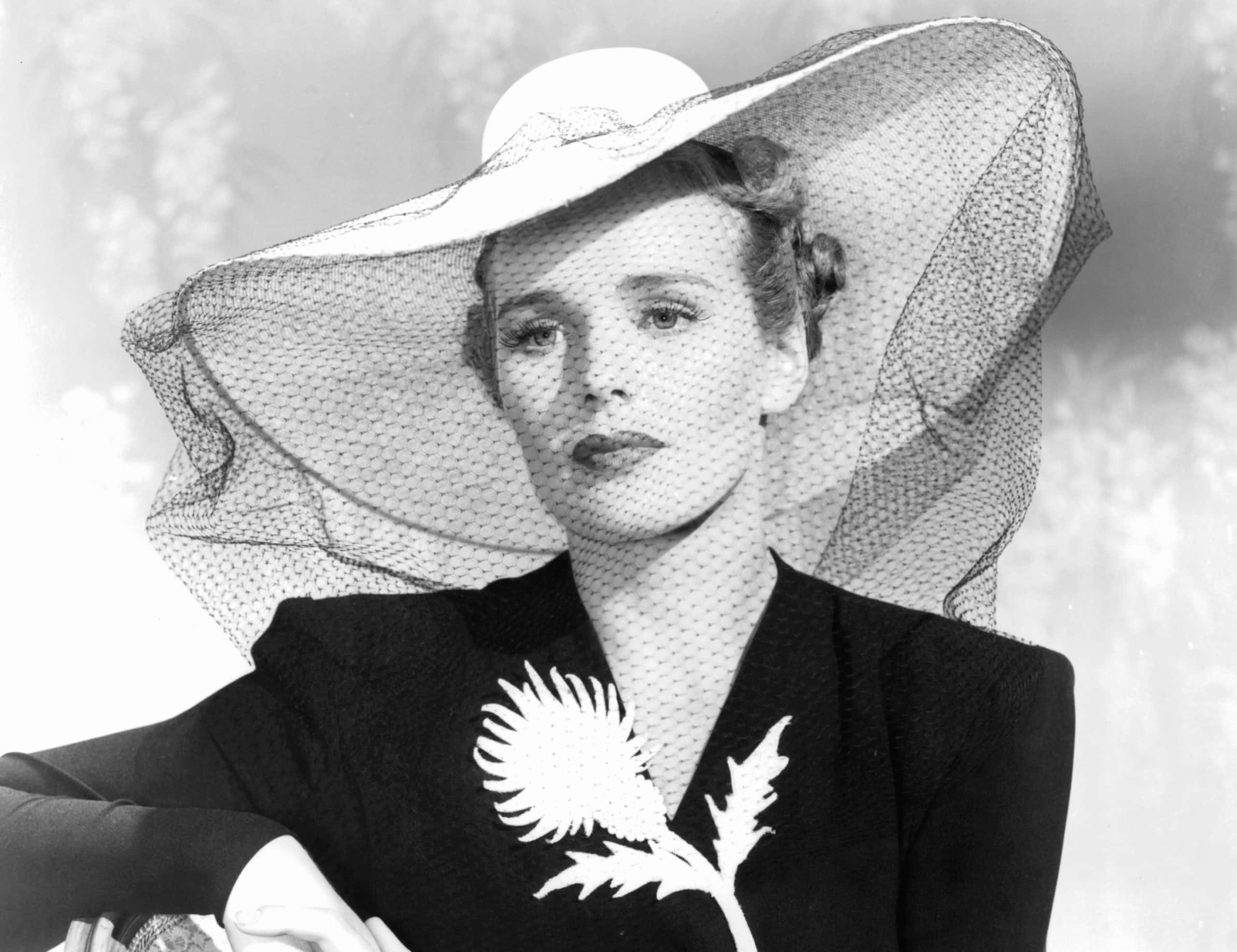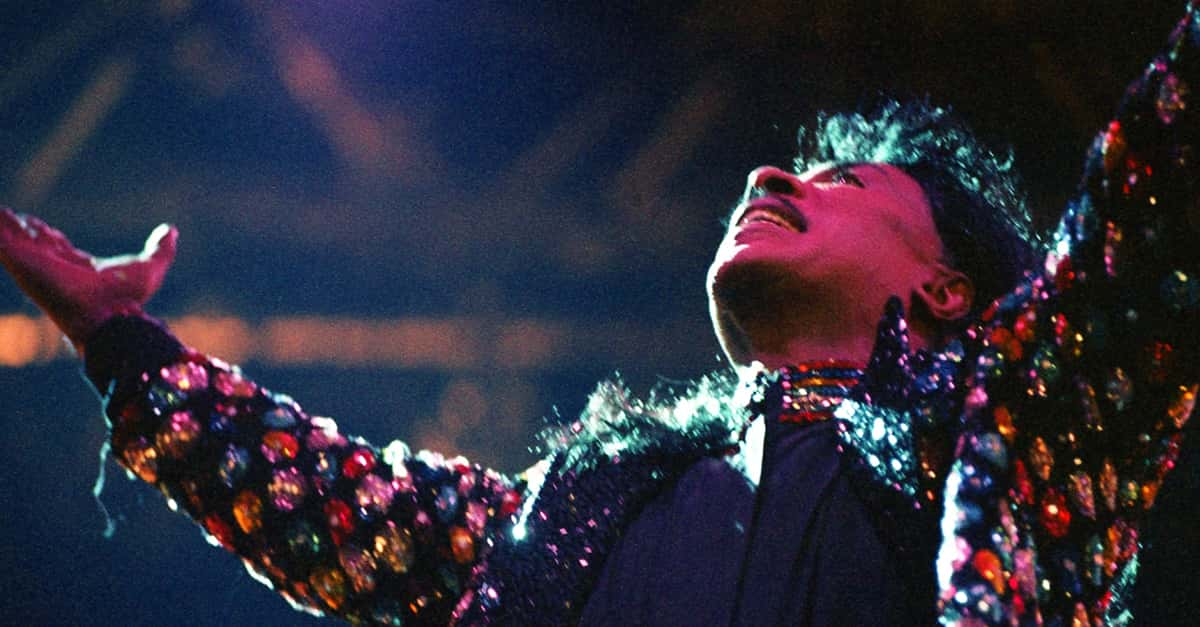The Deranged Life Of Frances Farmer
Everyone thought Frances Farmer was on the path to becoming the next big thing—but instead, she met one of the most horrifying fates Hollywood has ever seen. After spending five years locked up in a mental hospital, Farmer emerged with disturbing secrets at her back—and it wasn’t until after she passed that her horror story finally came out.
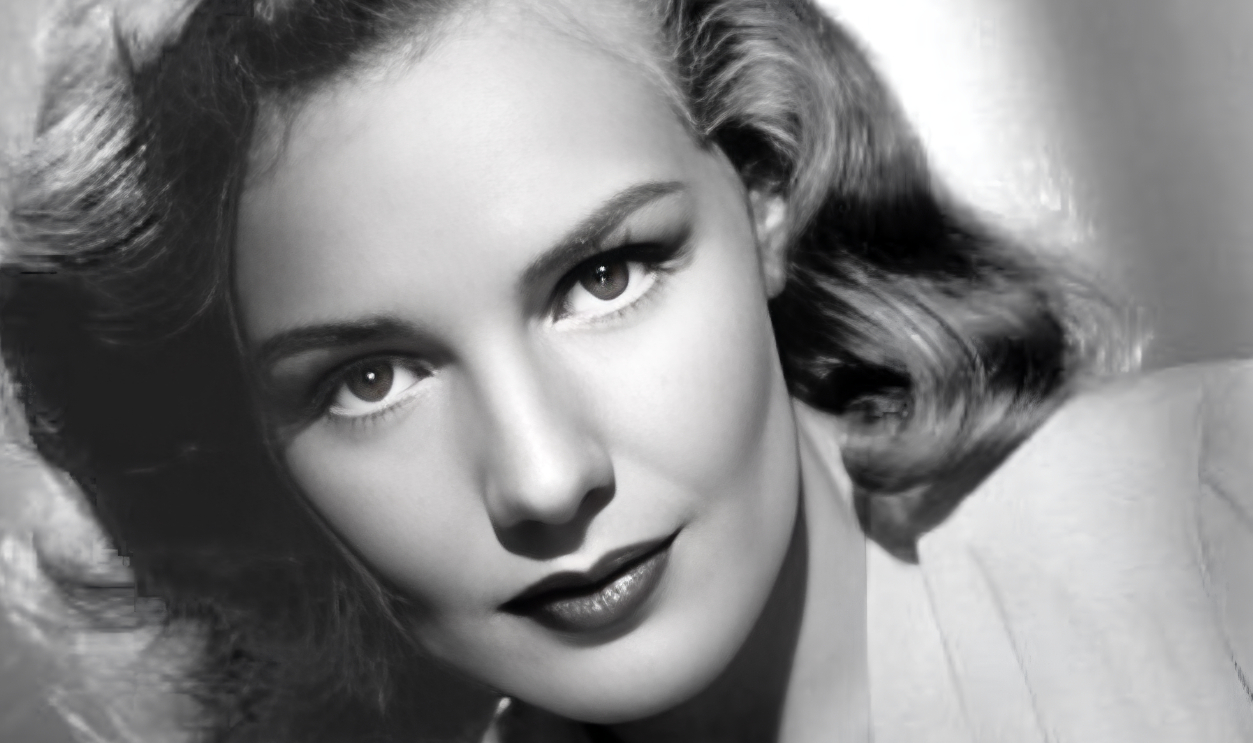
1. She Had To Grow Up Fast
Born on September 19, 1913, Frances Farmer's childhood was a confusing mess from start to finish. Her parents' marriage imploded when she was just 4-years-old. After that, she was at the mercy of her mother's fickle ways. Dragged from place to place, little Frances and her siblings grew up much faster than they should have—and the consequences were heartbreaking.
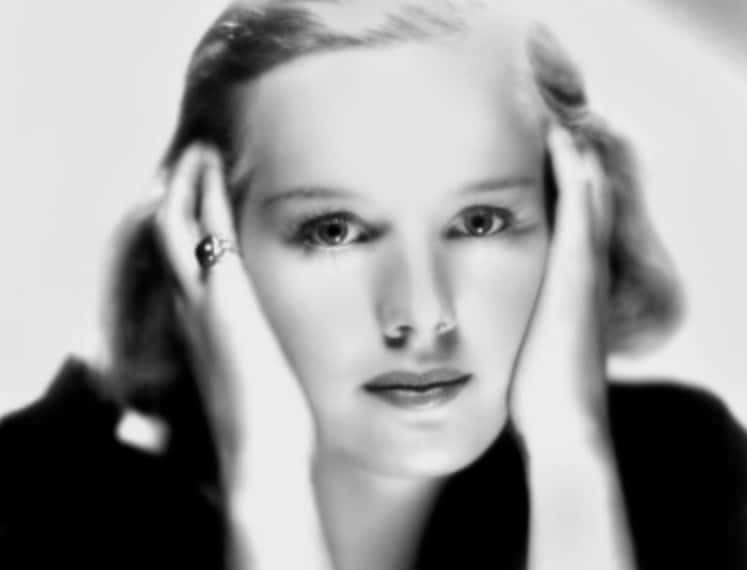
2. Her Mother Sent Her Away
When she was just 11 years old, Frances' mother made—what we can only imagine was a heartbreaking decision. Unable to properly care for her children and work, Lillian Farmer sent them back to live with their father. The train ride to her new home was a turning point for young Frances—who realized in that moment that she couldn't place her trust in the adults in her life.
Overwhelmed by her chaotic upbringing, Frances began asking some very controversial questions.
3. She Lost Her Faith
As Frances became a teenager, she became increasingly aware of the world around her—its pain, its confusion, and its godlessness. In high school, she confronted spiritual questions and even wrote an essay titled, "God Dies." Taken by Nietzche's theories, Frances couldn't find any evidence of a God—and if he did exist—she felt utterly abandoned by him. But this inner turmoil would later rear its head in a dangerous way.
4. She Worked All Over
By the time she hit college, Frances knew that the only person she could depend on was herself. She worked tirelessly to put herself through journalism school. She tutored, waitressed, worked at the theater—why she even worked in a soap factory. But fate had another plan in store for her. The moment she got her first taste of drama, everything changed.
5. There Were Rumors About Her
Nearing the end of her degree, Frances won a trip to the Soviet Union—and it was on that trip that she got to see the Moscow Art Theatre in action, and cemented her dream of becoming an actress. Outsiders, however, were increasingly suspicious of Frances' atheism and interests. Some even believed she was a communist.
But that was the great thing about Frances: She was never afraid to stir the pot or chase her dreams. Moving up and out of her broken childhood, Frances' took the wheel and drove herself straight to the top.
6. She Jumped On A Train
Next up for Frances? New York City. The year was 1935, and she was eager to break into the theater scene. But this didn't happen. Instead, a talent agent steered her straight to Paramount Pictures where she absolutely nailed her very first screen test. This got things started, and once it started, things didn't stop. On her 22nd birthday, Frances signed a seven-year acting contract—and it turned her life upside down.
7. Her Makeover
Frances had barely settled in NYC before Paramount scooped her up and whisked her off to Hollywood. But she wasn't screen-ready just yet. To become an object of perfection, this young novice had to undergo a total makeover. This makeover was pretty all-inclusive: Dental surgery to fix her gapped teeth and extensive training on the studio lot were all part of her movie star metamorphoses. But while the studios were eager to mold Frances into the next big thing, her personality was naturally rebellious—and it got her into some serious trouble.
8. She Didn't Need Fancy Things

History's most fascinating stories and darkest secrets, delivered to your inbox daily.
9. She Was Stubborn
Frances had strong opinions and certainly infuriated Paramount with her stubbornness. Wanting to give her all the star power possible, the studio tried to get Frances to change her name to something more alluring. But that was never going to happen. If Frances Farmer didn't want to change her name then it wasn't getting changed.
But Frances' strong-willed nature went far beyond her appearance.
10. She Had Hollywood Reeling
Frances Farmer was an undeniable stunner for sure—but she was so much more than that also. With her piercing blue eyes, swinging blonde locks, and seductive voice, she sent Hollywood into a frenzy. But she also liked to challenge the status quo and ask questions. Frances wasn't scared to rock the boat as they say—and she would openly vocalized her interest in controversial causes.
But despite her rough-and-tumble independence, there was something about Frances Farmer that excited everyone.
11. She Captivated Their Imaginations
When Frances Farmer stepped onto the scene, everyone took notice. Acclaimed columnist Louella Parsons even made a mighty prediction, stating that Frances would one day be "Bigger than Garbo." Certainly, her first year on the job was no joke. She rolled out four films, excited her audiences, and dove straight into a reckless romance with another Paramount actor.
12. She Married Young
When it came to romance, Frances didn't think twice—and that wasn't necessarily a good thing. The year after getting her start in Hollywood, she married Leif Erickson. They'd met on the studio lot, and had barely started dating before they pressed fast-forward and tied the knot. In the heat of the moment, though, Frances felt like she had it made.
She had a booming career, a handsome husband, and her whole life ahead of her. What could possibly go wrong?
13. She Had A Crush
Frances' very first A-list movie was a western called Rhythm on the Range, and the experience left her completely starstruck. Her leading man was none other than Bing Crosby, and later, when recalling the film, she said, "I had had a crush on him since my high school days, and stood in awe of the fact that in my first important film I was actually working as his leading lady."
But that's when the real pressures of show business sideswiped Frances for the first time.
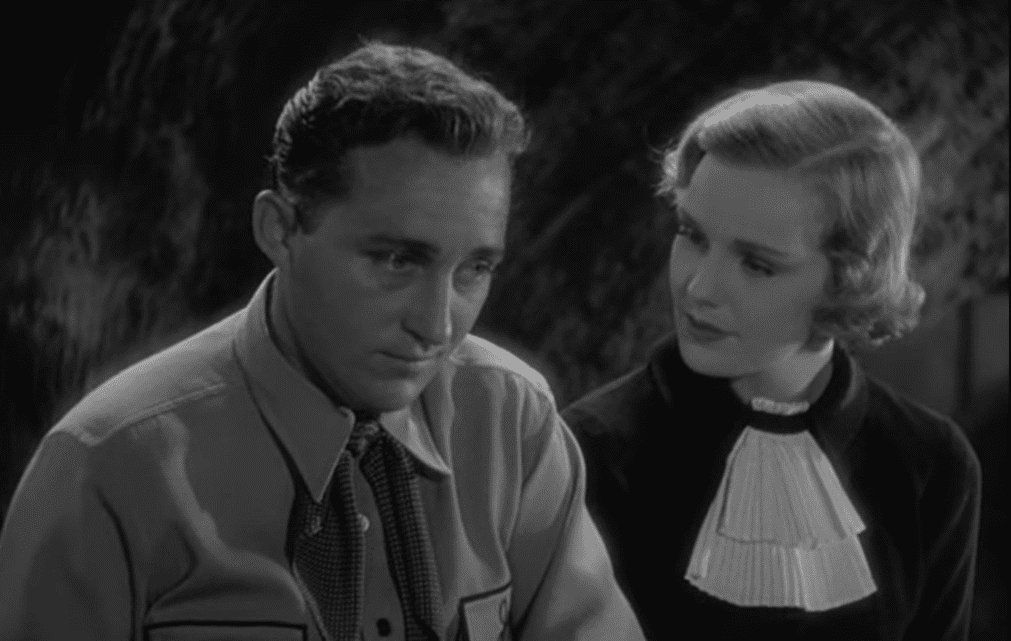 Rhythm on the Range (1936), Paramount Pictures
Rhythm on the Range (1936), Paramount Pictures
14. She Didn't Feel Like A Star
Frances quickly learned that being a "star" required her to do much more than just act. She had to be a star off screen too, and that quickly became one of her greatest struggles. With the success of Rhythm on the Range came higher expectations. Studio executive Adolph Zukor even called Frances up to tell her that she better start acting like the star she was becoming.
Well, for Frances, that was easier said than done.
15. She Didn't Want To Party
You see, Frances wasn't a party girl at all. This woman was a homebody through and through and loved holing up at home with her husband in Laurel Canyon. To her studio's dismay, she turned down every high-profile invitation possible. Running out of options, Paramount tried everything in their power to work with Frances' eccentricities, even dubbing her "the star who would not go Hollywood."
Tensions were running high, and although she didn't know it yet, Frances toed a very dangerous line—one that would lead her straight to her doom.
16. She Was Unbearable
Frances peaked with her performance in 1936's Come and Get It—but she and the director, William Wyler, fought with one another mercilessly. He later commented, "The nicest thing I can say about Frances Farmer is that she is unbearable." And he wasn't the only one to criticize her. Because she had no interest in engaging with the press, the media found her to be rather cold and unlikable.
Slowly but surely, Frances' enthusiasm for Hollywood began to wane—and it pushed her into making a shocking decision.
17. She Ran Away
Tired of the studio's need to control her every move and longing for more serious roles, Farmer did the unthinkable and turned her back on films. She fled to the East Coast where she starred in a play called Golden Boy. Frances was at her best whenever she followed her heart. She fell in love with theater all over again—and in the process, fell for the director too. But this was destined to end badly.
18. Her Lover Betrayed Her
Frances Farmer was still with her husband when she slipped beneath the sheets with married playwright, Clifford Odets. However, their passionate affair lacked the one thing that Farmer truly desired: commitment. And unfortunately, Odets never had plans to give it to her. You see, out of nowhere, Odets unceremoniously dumped Farmer and returned to his wife—but his betrayal didn't end there.
19. She Felt Exploited
Frances couldn't believe it when her ex-lover cast another actress for Golden Boy's next run. It was a slap in the face, and moreover, she felt used for her success. She returned to Hollywood with her heart in hand, but her life would never be the same again. As time passed and she took on more projects, her dissatisfaction and depression only deepened.
By the time 1940 hit, Frances' life had taken a sinister turn.
20. She Lost Control
Red flags began popping up in Frances' life, and she began to lose control. While rehearsing for Broadway's The Fifth Column, she turned to drink. You see, Frances was sad. In fact, she was so disheartened that she couldn't even see the project through. When she backed out of the job, the Theater Guild hit her with a whopping fine of $1,500.
Her lack of professionalism was turning into a massive problem—and her studio was its wit's end.
21. She Had A Bad Reputation
Soon, Frances' working reputation was in shambles. The studios didn't like her, and she didn't like the studios. This mutual dissatisfaction came to a breaking point when Frances refused to act in Take a Letter, Darling. The studio suspended her—but this was only the tip of the iceberg. You see, not only was her career veering into dangerous territory but so was her marriage.
22. Her Husband Didn't Love Her
Frances Farmer and Leif Erickson fell apart at the worst time ever—and the details were utterly scandalous. Before their divorce was even finalized, Erickson had already begun seeing actress Margaret Hayes. He was so eager to get on with his life and his exciting new romance that he married Hayes on the very same day his divorce went through.
Frances, now utterly alone, felt the world darkening around her—and her behavior disturbingly reflected her teetering mental state.
23. She Was Dangerous
In the autumn of 1942, authorities pulled Frances Farmer over for using her high beam while driving in a blackout zone. When officers confronted her, however, they realized something wasn't quite right with the woman behind the wheel. They immediately suspected that she'd been drinking, and it showed in her venomous behavior.
24. She Ended Up Behind Bars
Reportedly, Frances didn't have her driver's license on her, and even worse, she verbally ripped into the officers. There was no getting out of this uncomfy situation, and before she knew it, Frances found herself at an all-time low: locked behind bars. Trapped in a downward spiral, this once-thriving actress faced a $500 dollar fine and a suspended license. But this was only the beginning of the nightmare.
25. She Lost Everything
In a single year, Frances Farmer lost everything in one fell swoop: her career, her husband, and even her grip on reality. Following her horrifying night in prison, Frances still managed to find work. But this quickly ended in disaster. Her agent sent her to Mexico City for the film Murder at Laudice—but when she arrived, she came to a disappointing realization.
 Wikimedia Commons, Chalmers Butterfield
Wikimedia Commons, Chalmers Butterfield
26. She Disturbed The Peace
Frances' agent had sent her all the way to Mexico City for a movie that would never be made; the script wasn't even complete. This meant Frances had ample time to get herself into even more trouble. Once again, she drank herself into a stupor and officials reportedly charged her for disturbing the peace. They forced the actress to pack up her reckless behavior and return to the United States.
However, when Frances returned to her home in Santa Monica, she came upon a disturbing discovery.
27. She Shacked Up In A Hotel
To her horror, Frances discovered that her home had been stripped of all of her worldly possessions. But that wasn't the wildest part. Another family had taken up residence there. Later, she blamed her own mother and sister-in-law for this invasion of privacy—and yet, it was her mother who rented her a room in a Hollywood hotel because she had nowhere else to go.
Frances was in distress; she was all over the place and terribly depressed. But if she thought that she could fall no further, she was so, so wrong.
28. She Punched A Hairdresser
January of 1943 was a downright horror show. In fact, everything that could possibly go wrong happened all at once. First of all, because Frances had only paid half of her fine, a warrant was put out for her arrest. On top of that, she also faced a charge filed against her by a studio hairdresser who alleged that Frances had taken a swing at her face, dislocating her jaw.
All of a sudden Frances was cast as a villain, and it led to utter chaos.
29. She Went Streaking
On top of all the other transgressions, Frances was reportedly seen streaking down Sunset Boulevard, revealing everything from the waist up. Even worse? This followed a fight she'd had at a bar. The authorities were after Frances, but taking her into custody proved far harder than they ever imagined. When they arrived at her hotel room, Frances refused to let them in.
30. She Put Up A Fight
When officers broke into Frances' hotel room with a passkey, she freaked out. She put up a vicious fight, and in the end, the authorities had to forcefully remove her from the premises. When she arrived at the headquarters, she wasn't wearing a stitch of clothing. Frances Farmer, the beautiful and intelligent actress, had transformed into a deranged woman—utterly unrecognizable and terrifying.
31. She Confessed It All
As unsettling as that night was, Frances' hearing was just as mind-boggling. She was all over the place and wild, hurling an inkwell at the judge and claiming that she'd had her civil rights violated. And then came the confessions. In regard to her drinking problem, she admitted, "I put liquor in my milk...in my coffee and in my orange juice."
Unsurprisingly, the judge didn't hold back.
32. She Tried To Escape
After this series of unfortunate events, Frances faces 180 days in prison. While leaving the courtroom, she turned volatile, and almost nobody could hold her. She injured an officer and knocked another one down. Her outburst allowed her to escape their clutches and she sprinted straight for a phone booth where she tried to reach an attorney. But the saddest part was yet to come.
33. She Evaded Her Punishment
Despite her temperament, the authorities managed to restrain Frances and began hauling her away. That's when she cried out in anguish, "Have you ever had a broken heart?" Although Frances now faced a daunting punishment, her sister-in-law did everything in her power to have her placed in a psychiatric hospital instead. But while this may have seemed like a saving grace, the hospital had its own hidden horrors.
34. She Got A Disturbing Diagnosis
Frances Farmer's diagnoses included manic depressive psychosis and paranoid schizophrenia. Things were not looking good for poor Frances. Her nine months spent in the Kimball Sanitarium were deeply upsetting. She later claimed that she'd endured insulin treatments for 90 days straight. This compelled her to run away from the institution.
But if Frances thought she could escape the clutches of someone else's control, she was sorely mistaken.
35. She Hated Being Controlled
Frances ran straight back to her family and complained about the sanitarium's treatments. Her mother, Lillian, fought for guardianship over her daughter and won. But this was only another form of entrapment for Frances. She and her mother were like oil and water, and soon, their relationship turned ugly. In her autobiography, Frances wrote, "Mamma and I had fought, argued, threatened, and screamed...We were enemies who had grown tired of pretending."
36. She Scared Her Mother
Frances' freedom under this new guardianship didn't last long. After one scary incident where Frances lashed out at her mother, Lillian decided to send her back to an institution. This time it was the Western State Hospital. After three months, a silver lining emerged. The hospital claimed that Frances was cured. They were terribly mistaken.
37. She Relapsed
Upon release, it became astoundingly obvious that Frances wasn't cured in the slightest. She immediately returned to her bizarre ways. She kept running away from her parents' home in Seattle, and officers nailed her for vagrancy on multiple occasions. Everyone in her life began to realize that Frances simply could not be controlled.
Her parents returned her to the Western State Hospital, and this time, Frances remained institutionalized for five years.
 Frances (1982), Universal Pictures
Frances (1982), Universal Pictures
38. She Became A Myth
The myths that surround Frances Farmer's legacy emerged from her five-year imprisonment in the Western State Hospital. In 1978, author William Arnold wrote a shocking "biography" called Shadowland. It was all about Frances, and in it, Arnold claimed that the doctors had done something absolutely unspeakable to the former actress.
39. Her Story Was A Lie
Arnold alleged in his book that Frances' doctors had performed a lobotomy on her. This became recognized as fact when, in reality, it was simply fiction. The truth didn't come out until 1983 when a copyright infringement case led to Arnold's stunning confession: He'd made the entire lobotomy story up. Unfortunately, Hollywood had already gotten their claws into this falsified story.
40. Her Truth Remained Buried
The film Frances, starring Jessica Lange, included a lobotomy scene. After that, there was no going back. Everyone who saw the film believed that this was Frances Farmer's truth. The real story, however, had its own nightmarish qualities—but it was completely overshadowed by Hollywood's fictional retelling. This is what actually happened.
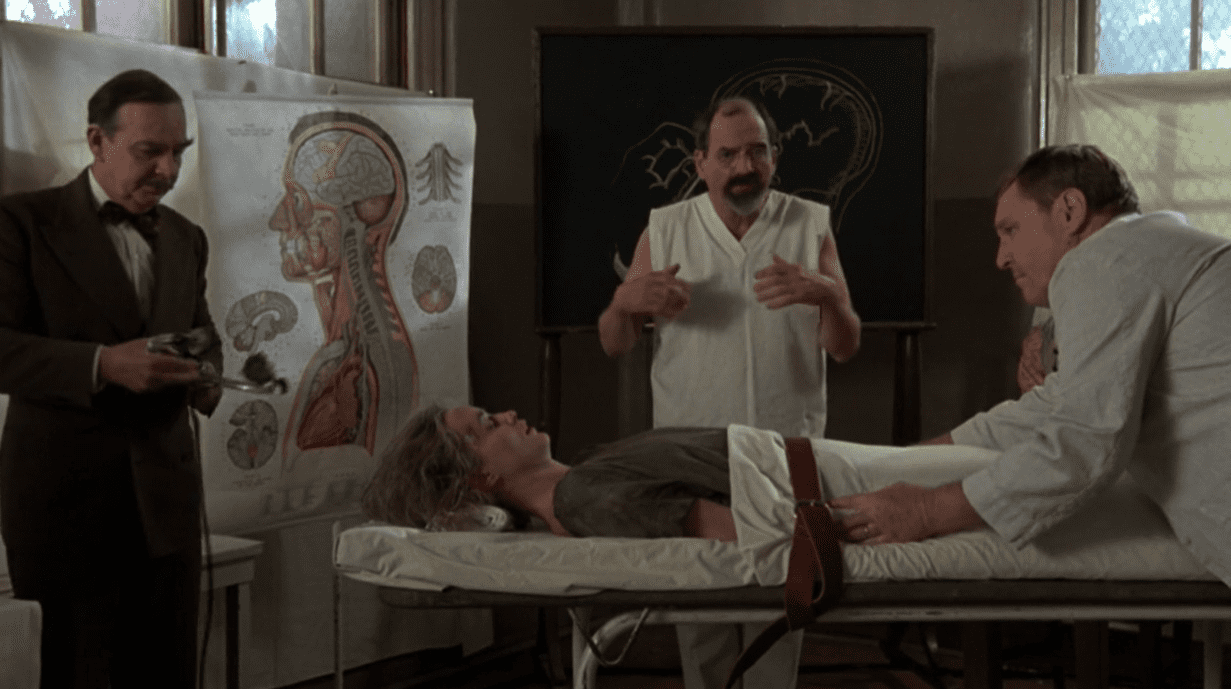 Frances (1982), Universal Pictures
Frances (1982), Universal Pictures
41. She Almost Had A Lobotomy
Three years before 1982's Frances, Frances' sister, Edith Elliot, had written her own book, Look Back In Love. It detailed a dramatic scene where Frances' father stopped the doctors from performing that notorious lobotomy. In one passage, Elliot echoed her fathers' anguished words: "if they tried any of their guinea pig operations on her, they would have a danged big lawsuit on their hands."
Unfortunately, although Frances escaped the consequences of that barbaric operation, she still faced unbelievable atrocities during her confinement...Of course, as we'll see, these secrets didn't come out until Frances had already passed.
42. She Won Her Independence
After emerging from the Western State Hospital, Frances feared being institutionalized again and worked to escape her mother's conservatorship. In 1954, a judge granted her wish, believing her to be competent enough to take care of herself again. Against all odds, Frances began rebuilding her life. But the next few years were a far cry from the glamor of her previous life.
43. She Started From The Bottom
Frances started out small. She began sorting laundry at the very hotel where she once celebrated the premiere of her film Come and Get It. But the highlights of her life were few and far between. Although she married again, the relationship was not a successful one. By 1957, both of Frances' parents had passed and her second marriage was over.
In many ways, this made her life a clean slate all over again. The clouds were finally parting for Frances—and it let her to an unexpected place.
 Frances (1982), Universal Pictures
Frances (1982), Universal Pictures
44. She Dreamed Of A Comeback
After getting back on her feet, Frances moved to Eureka, California, and landed a job as a bookkeeper and secretary. But once again, the memory of Hollywood kept beckoning her. This new life led her straight to her third husband, Leland C. Mikesell, who recognized her in a bar as a darling of Old Hollywood. As a broadcast promoter, he began to dream up a glorious comeback for her.
45. She Returned To The Stage
Frances Farmer finally resurfaced on The Ed Sullivan Show, and in addition, began speaking out about her history and public image. The sad fact was that she would never reach the soaring heights of the celebrity she once had. Still, she returned to television and began performing on stage for the first time in forever. This new lease on life was tentative at best—and despite her best efforts, Frances still couldn't escape her demons.
46. She Got Fired
The sixties brought new heartache and disappointments to Frances' doorstep. Her marriage to Mikesell disintegrated and although she was working in entertainment once more, she still had a worrisome drinking problem. Her addiction and subsequent binges resulted in her being fired from one of her projects. But that wasn't the worst incident.
47. She Made Countless Mistakes
Frances hit another personal low when she ended up behind bars for drinking and driving. This unfortunate relapse got splashed all over the media—but in an interesting twist of events, the publicity caused her next showing of The Visit to sell out. Although she was hesitant to step out on stage, once she did, she never regretted it.
In her autobiography, she remembered, “[T]here was a long silent pause as I stood there, followed by the most thunderous applause of my career. [The audience] swept the scandal under the rug with their ovation…my finest and final performance. I knew I would never need to act onstage again.”
48. She Turned Things Around
In her final years, Frances Farmer managed to scrape up some of the closure she needed. She quit drinking and began devoting her time to painting and poetry. Even more shocking? Frances turned her back on atheism and converted to Roman Catholicism. She completely turned around her life. But just as she began to capture some much-needed peace, tragedy struck.
49. She Met A Sudden End
In the spring of 1970, doctors diagnosed Frances with esophageal cancer, most likely attributed to her years of heaving smoking. The end was shockingly swift. By the end of the summer, Frances Farmer had passed. She was only 56 years old. But when it came to her sensational story, the world wasn't quite done with her. You see, before her heartbreaking diagnosis, Frances had begun writing her autobiography.
She'd even revisited her medical records from her horrifying stay at the Western State Hospital...
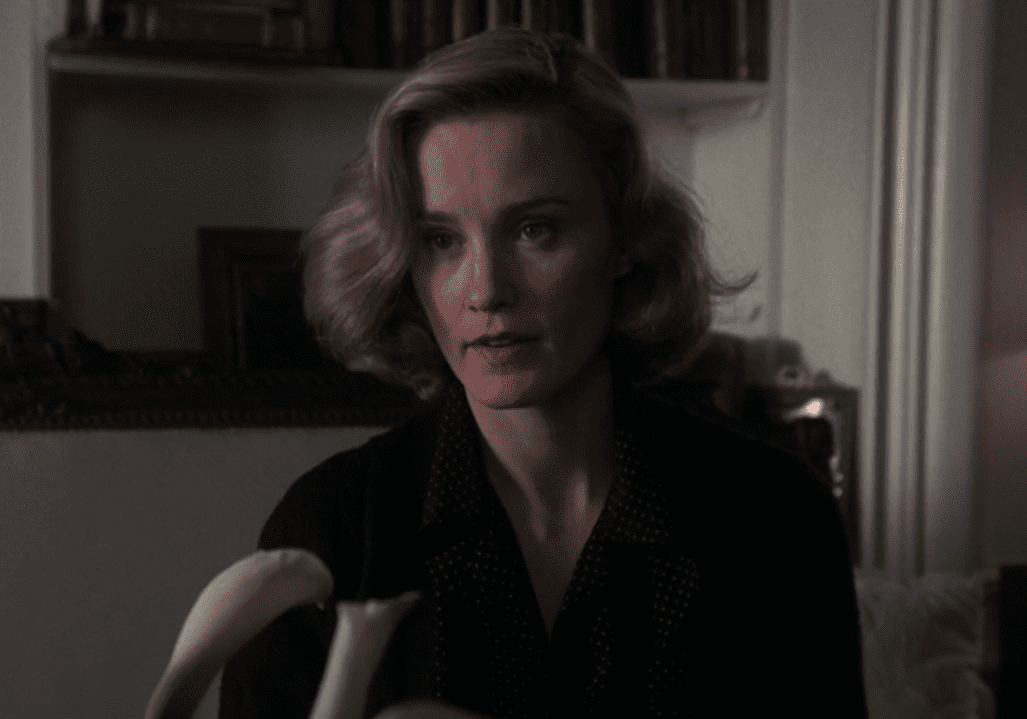 Frances (1982), Universal Pictures
Frances (1982), Universal Pictures
50. Her Secrets Came Out
Published after her passing, Frances Farmer's autobiography Will There Really Be A Morning? opened up a whole new can of worms. The details were utterly shocking. She wrote that she was “raped by orderlies, gnawed on by rats and poisoned by tainted food…chained in padded cells, strapped into strait jackets and half drowned in ice baths.”
These sordid stories were enough to make any reader's skin crawl. But was it actually the truth?
51. She'll Always Be A Mystery
Although Frances did write parts of her autobiography, her friend and roommate, Jean Ratcliffe, finished it for her. Since the book's publication, critics have speculated whether Ratcliffe made Frances' moments in the hospital more harrowing than they actually were. The dramatic writing may have been exaggerated to please publishers or even appeal to Hollywood for an adaptation.
No matter the answer, one thing remains true: Frances Farmer lived both a fairy tale and a nightmare, and to this day, her fans are still hungry for the truth.

